Constant police protection – this is a feature of Dušan Miljuš’ life as well. In 2008, the former editor in chief of the Croatian daily Jutarnji list was beaten up by strangers with baseball bats outside his house. The assailers broke his arm, he also suffered from concussion. Even before this attack, he got hate mail; a competing newspaper even published his obituary. What caused threats and the attack can only be assumed: newspaper articles about arms smuggling between the European Union and the states of former Yugoslavia and about the dealings of the Mafia in the municipal building trade in Croatian cities. Dušan Miljuš too, he named the culprits. In Croatia, he has become a symbol of brave journalism. Jutarnji list has been publishing a photo of its former editor in chief ever since, demanding that the crime must be cleared up completely. Since the end of the Balkan wars, there were more than 40 attacks on Croatian journalists.
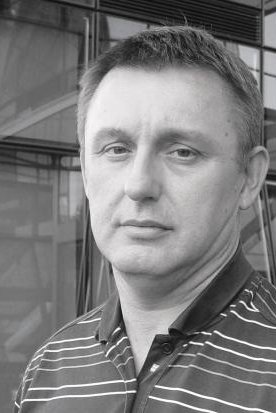
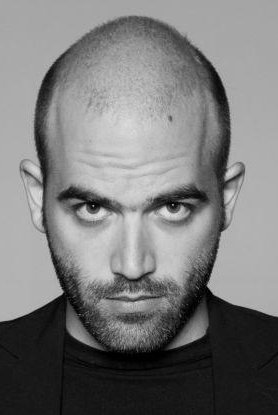
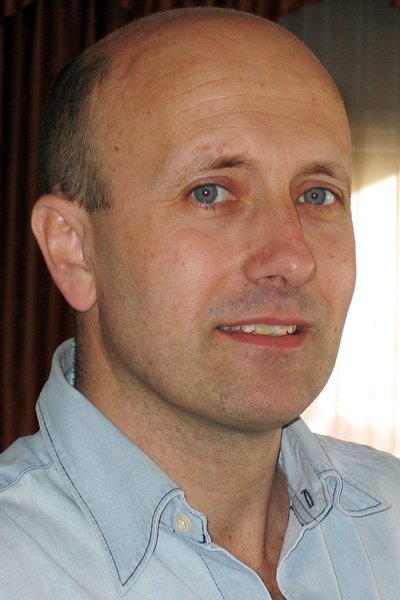
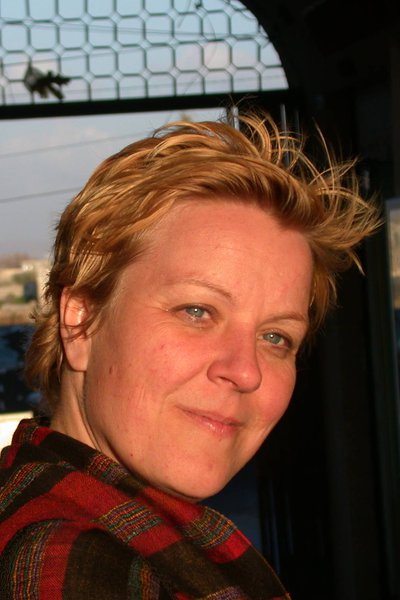
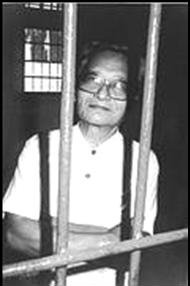
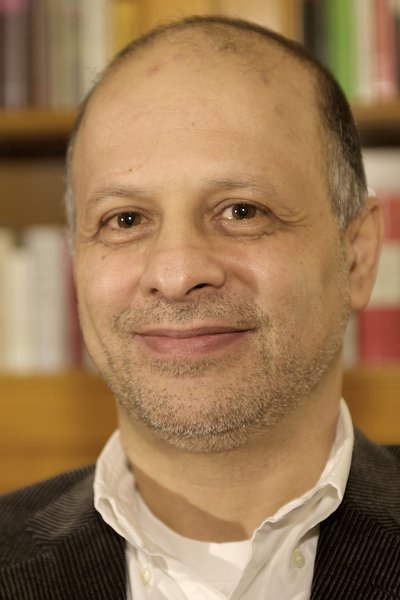
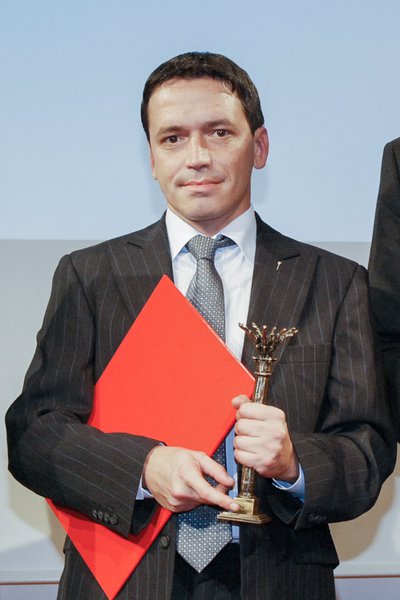
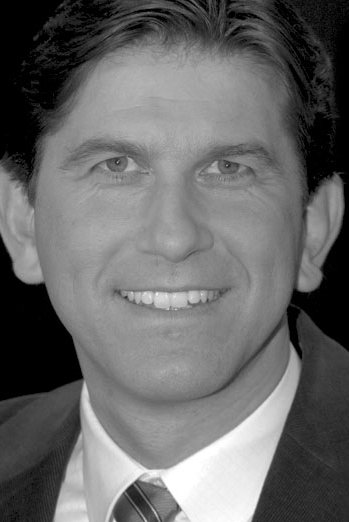
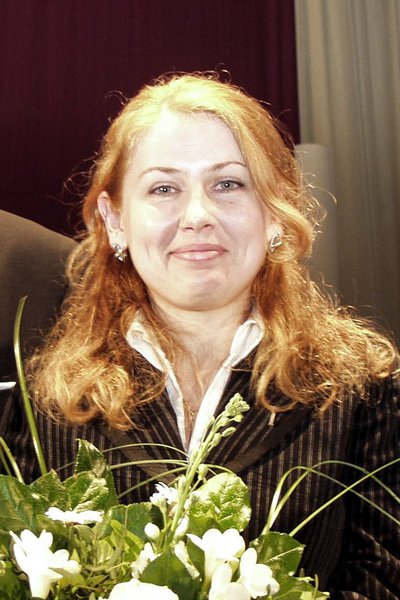
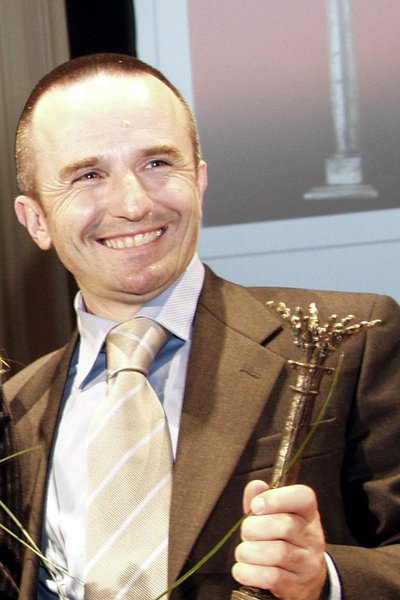
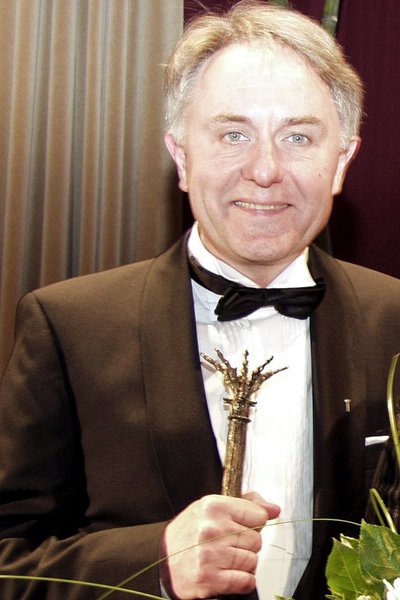
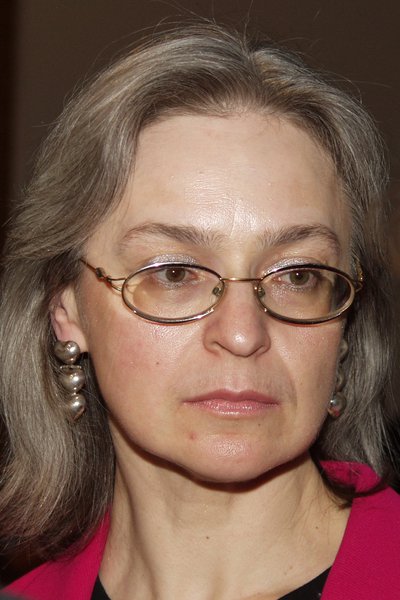
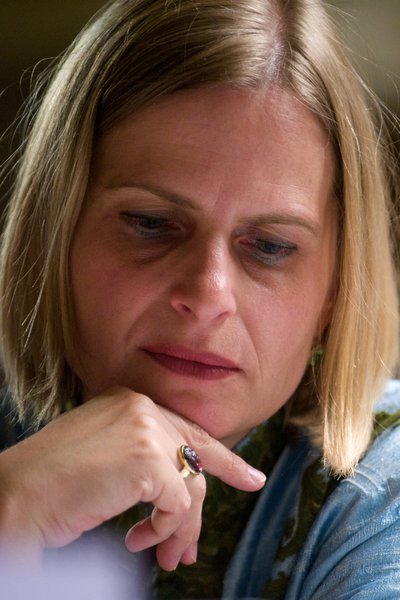
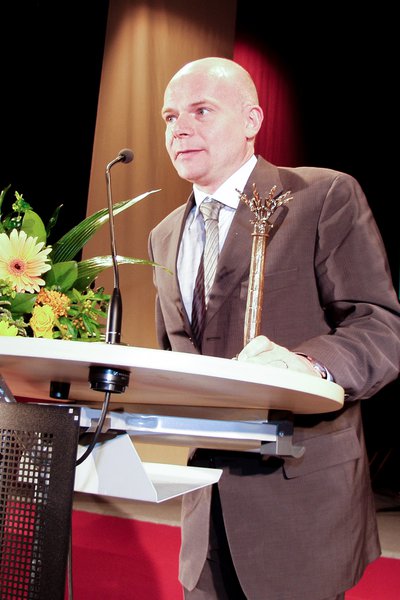
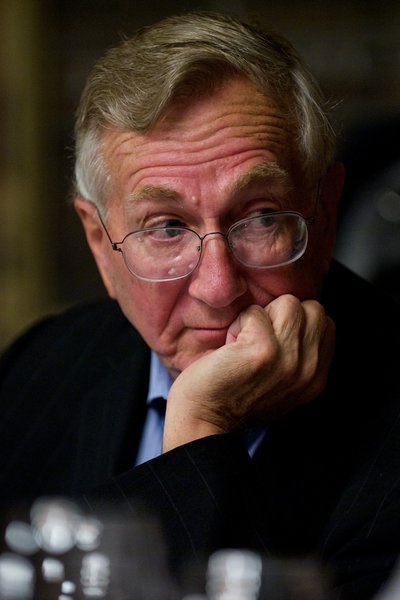
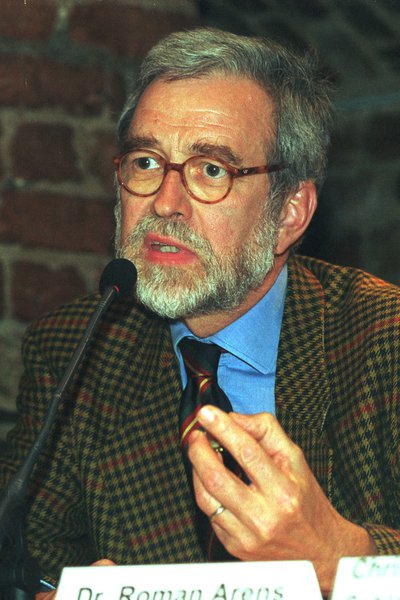
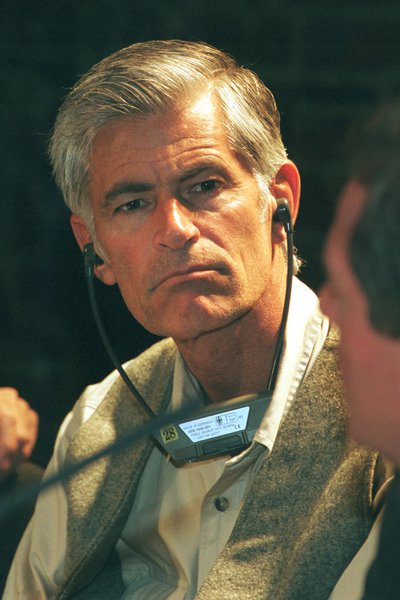
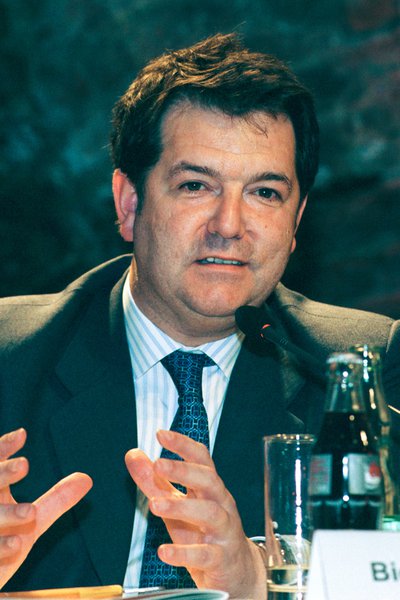
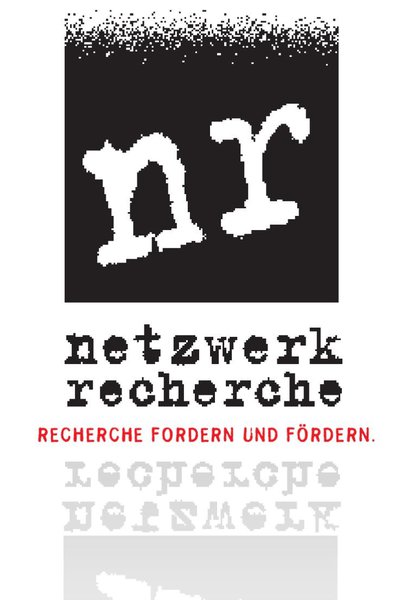
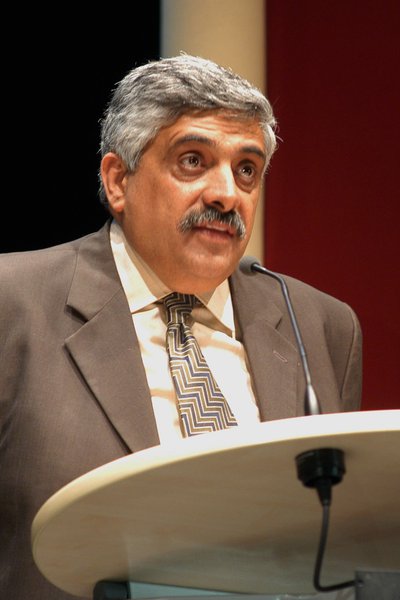
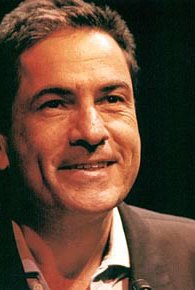
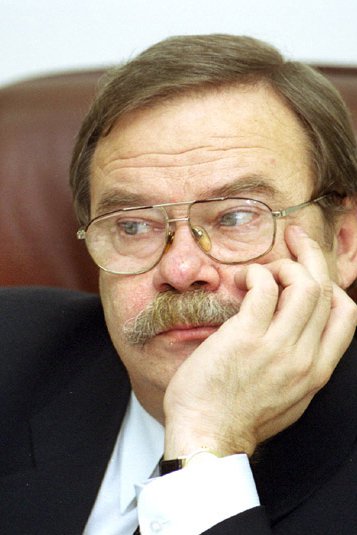
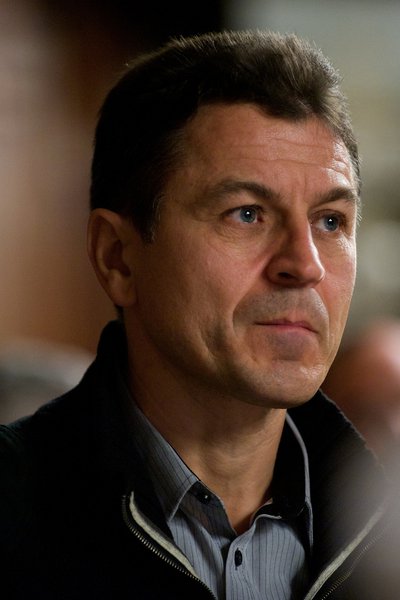
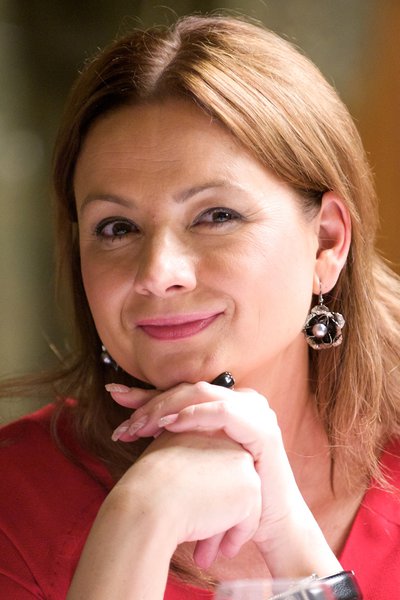
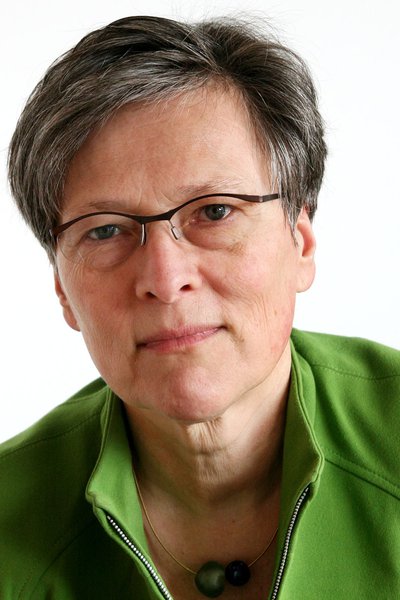
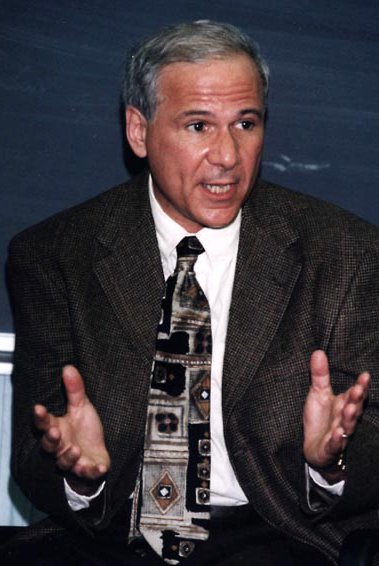
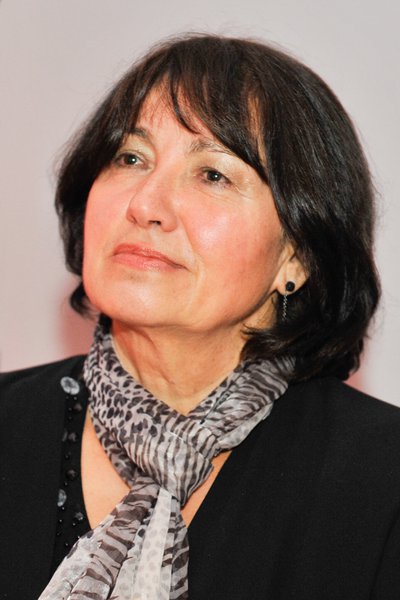
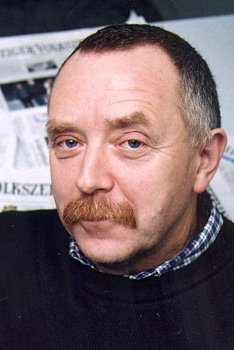
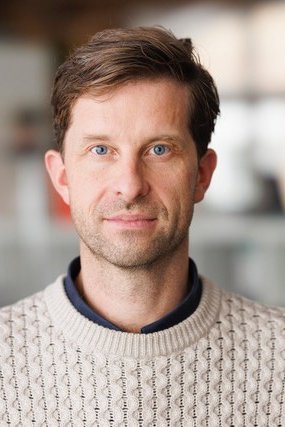
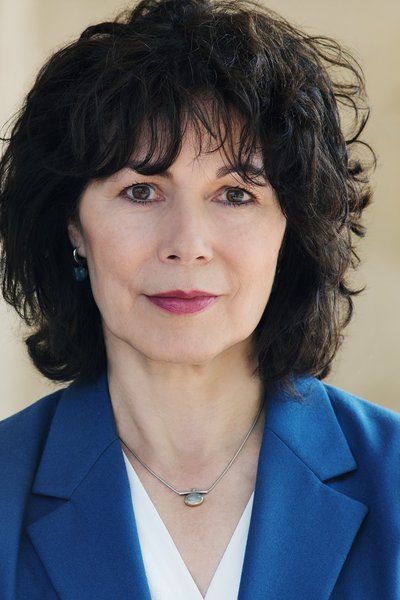
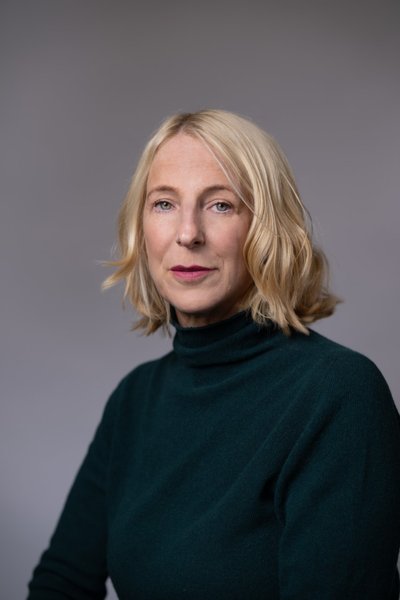
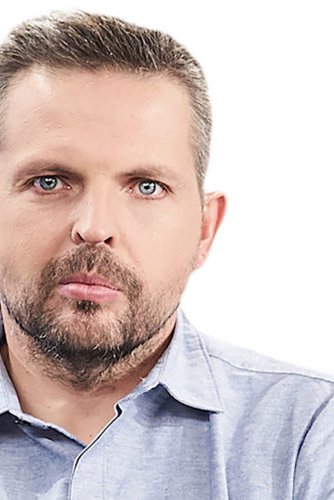
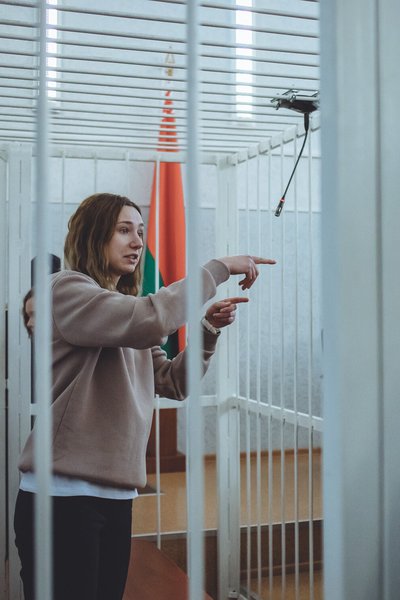
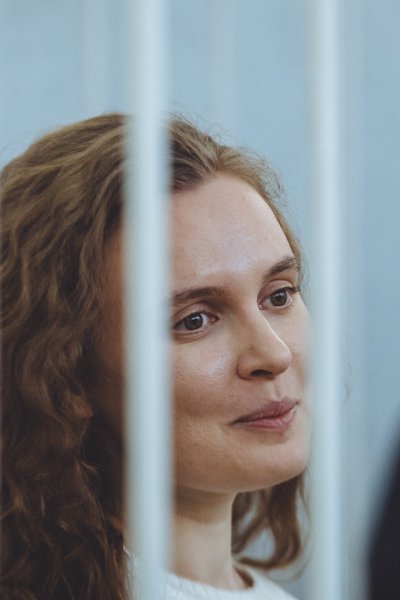

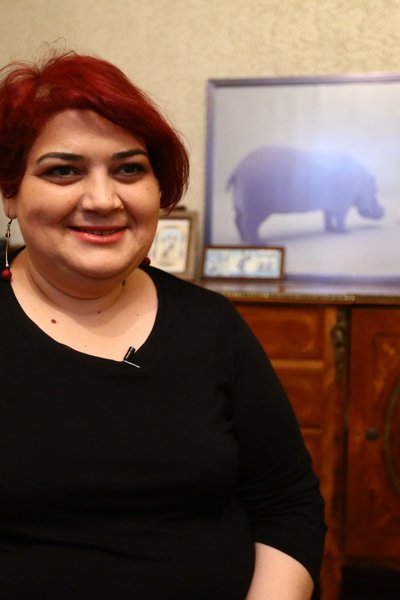
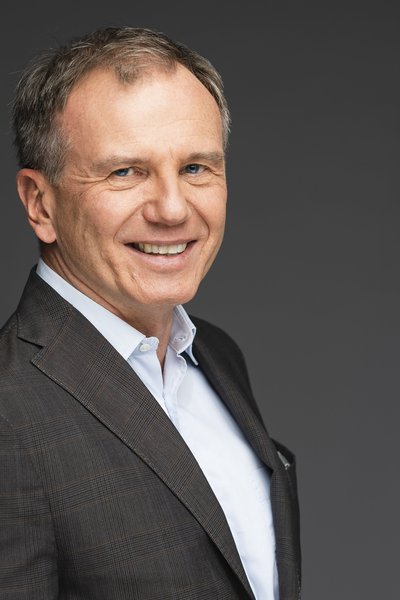
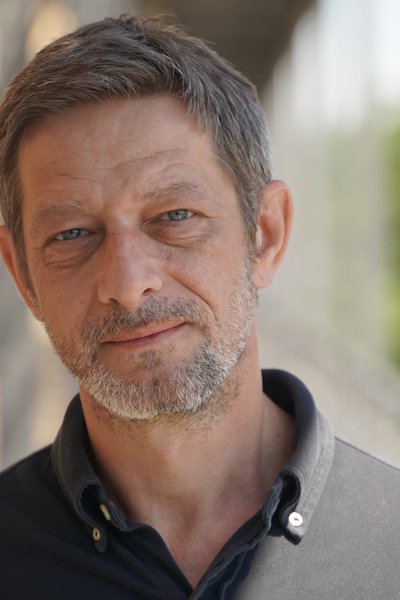
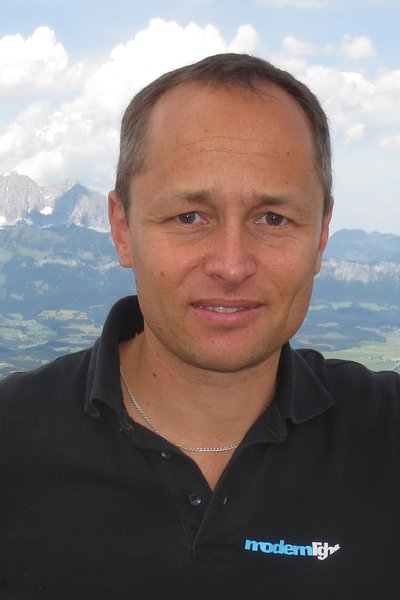
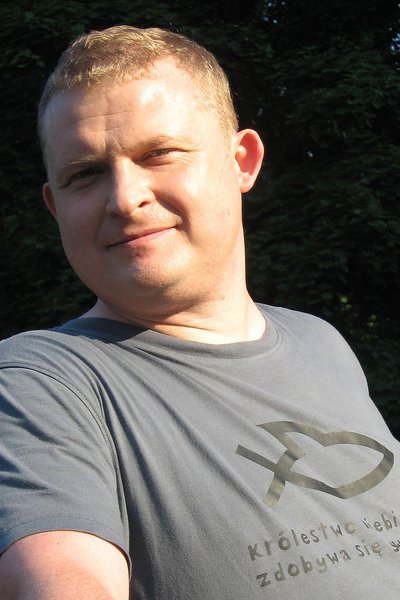
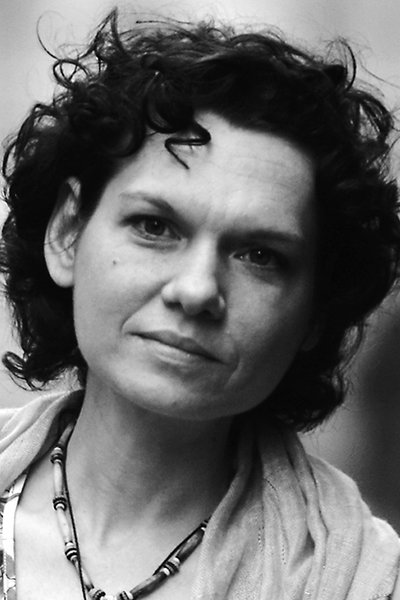
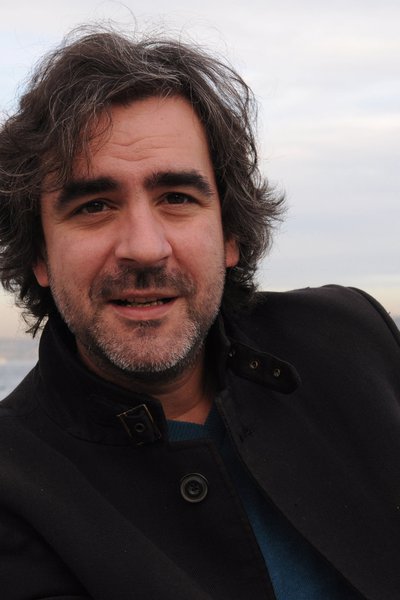
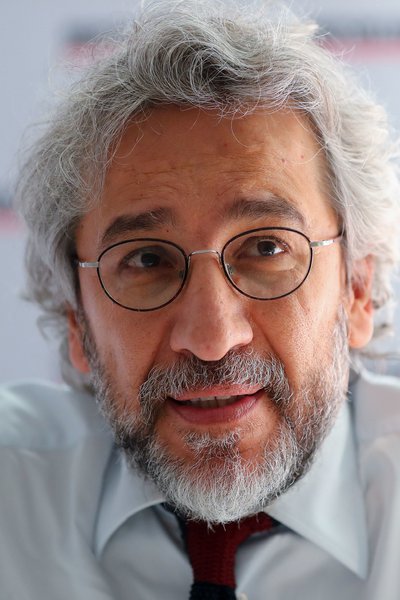
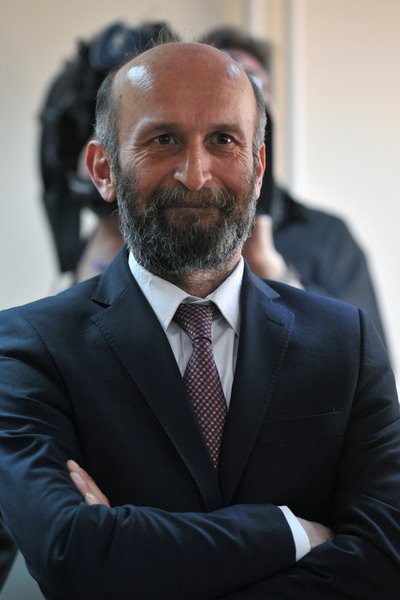
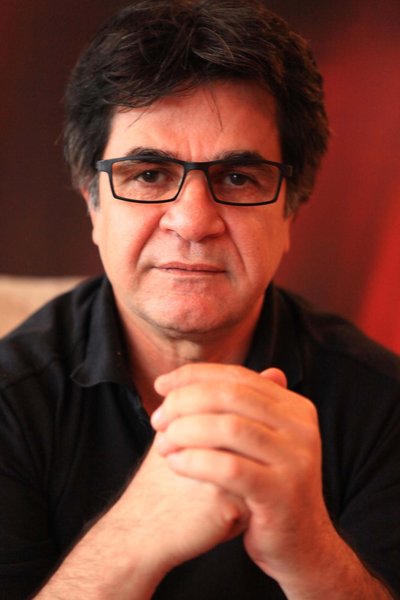
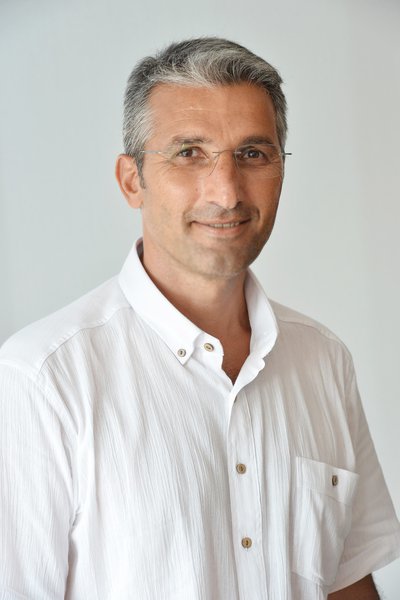
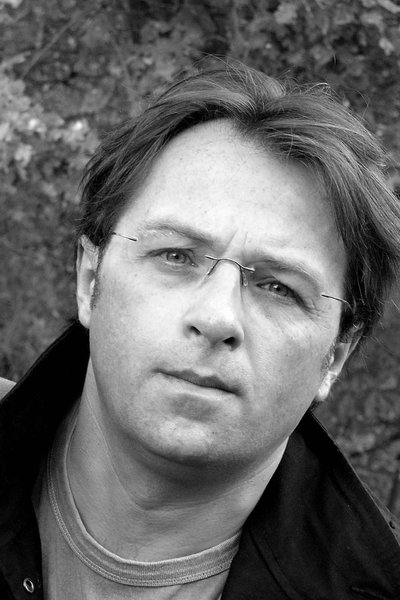
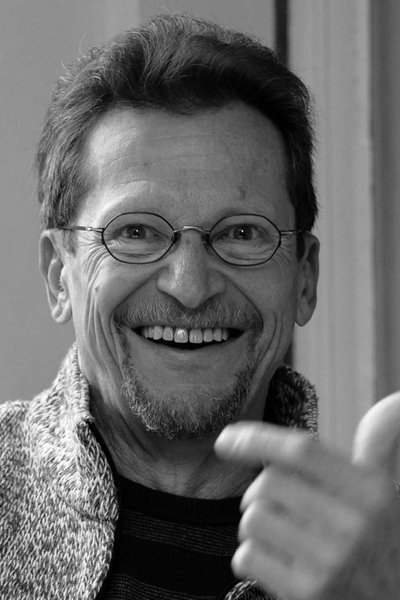
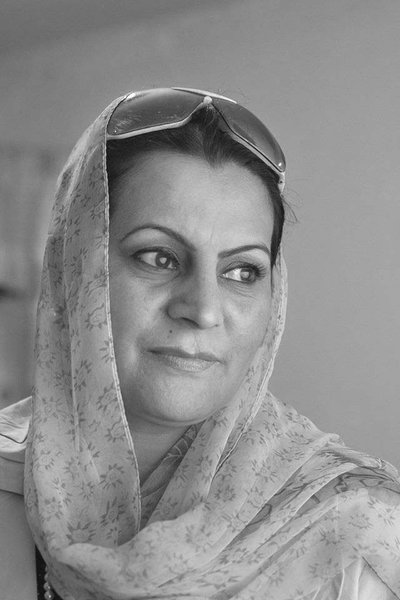
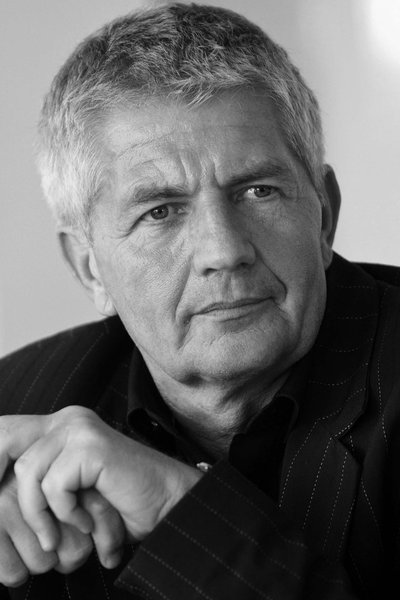
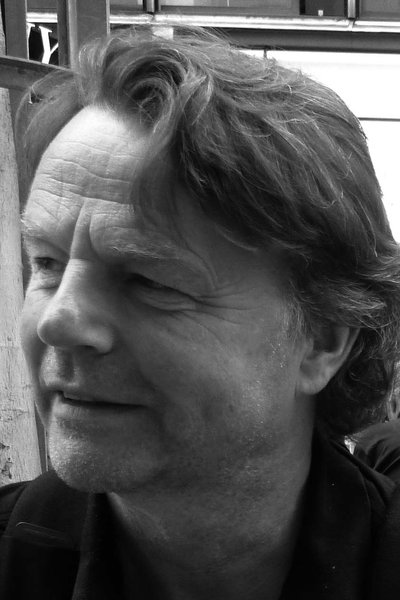
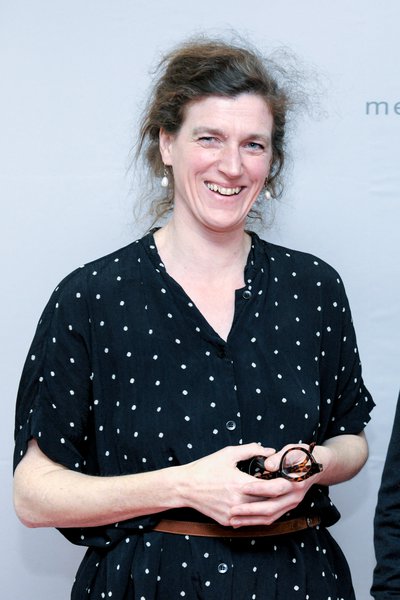
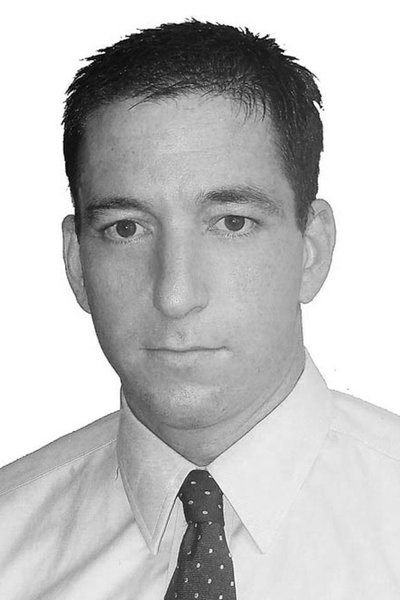
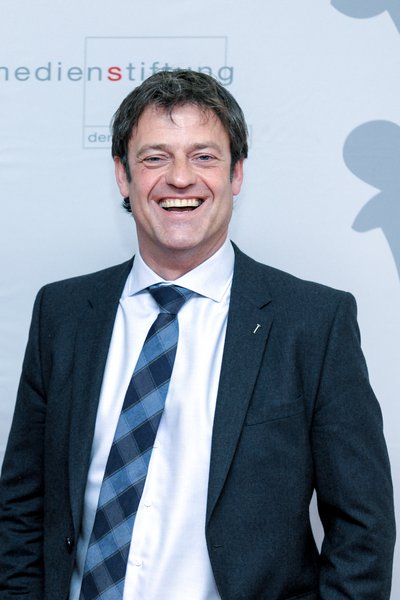
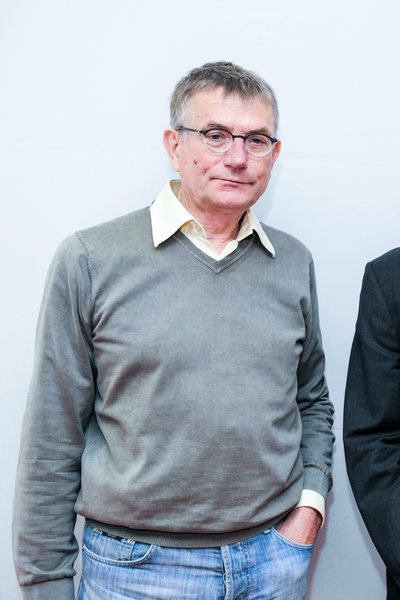
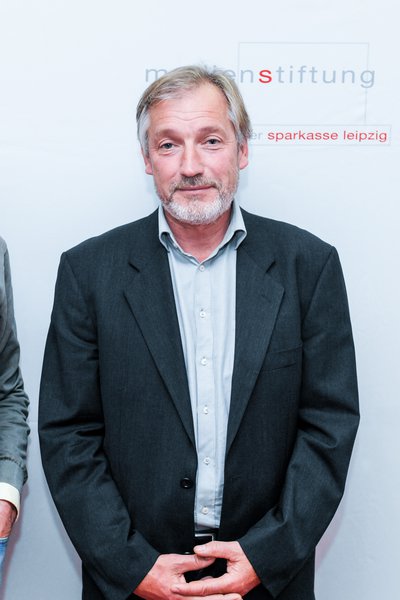
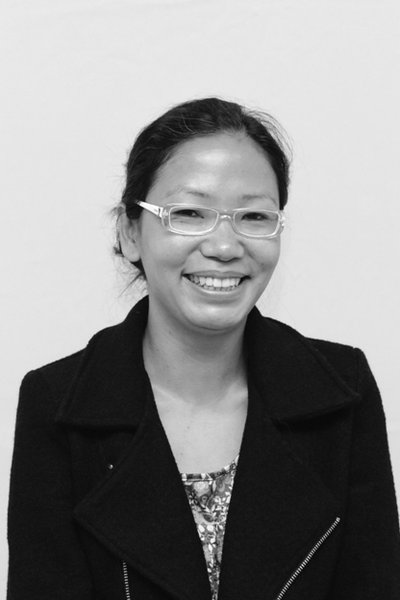
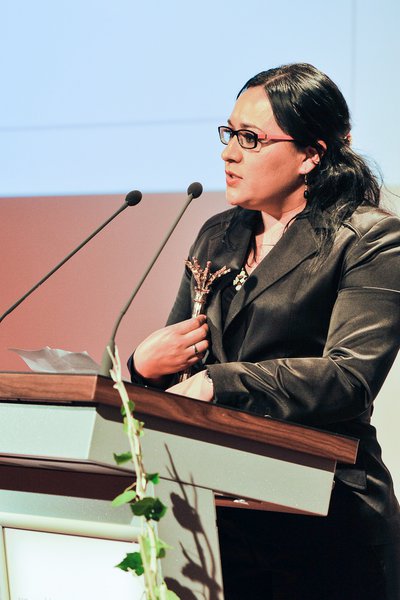
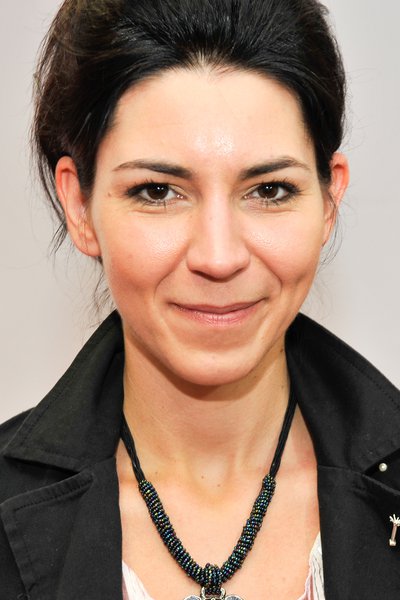
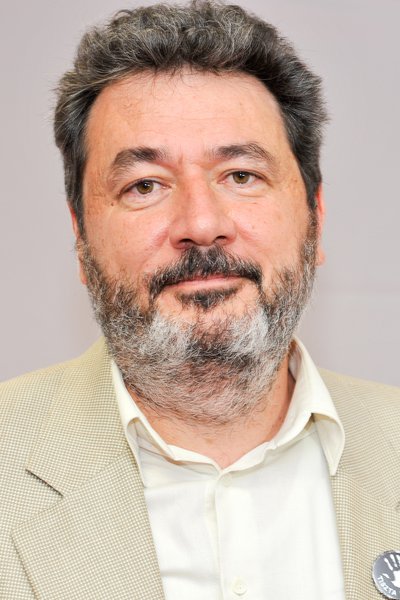
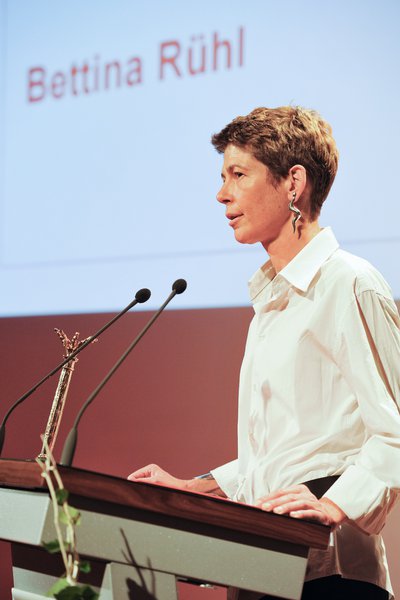
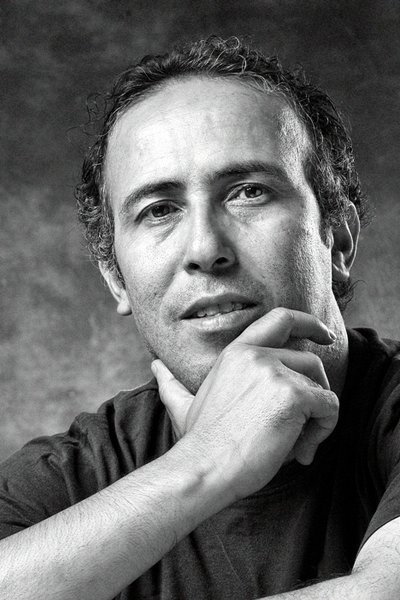
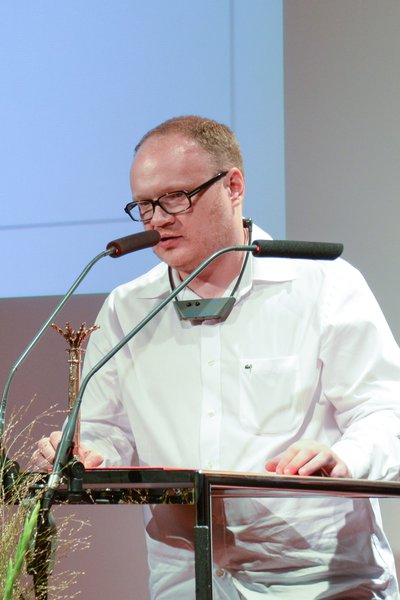
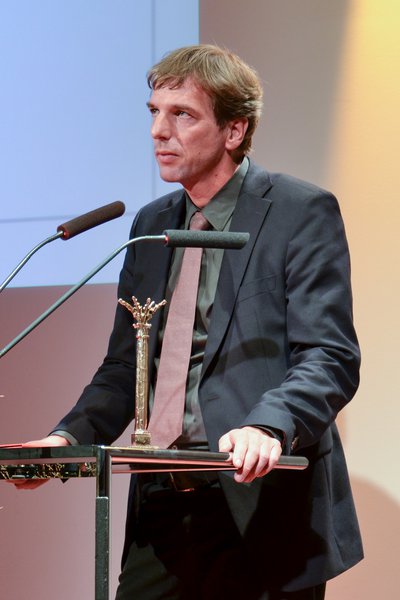
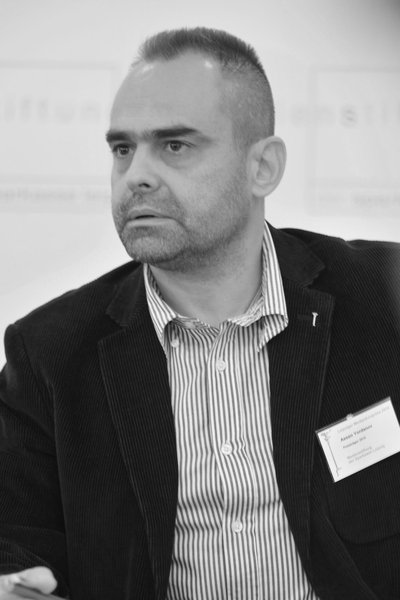
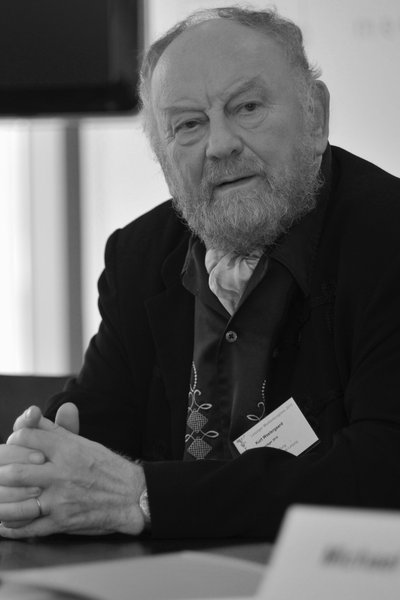
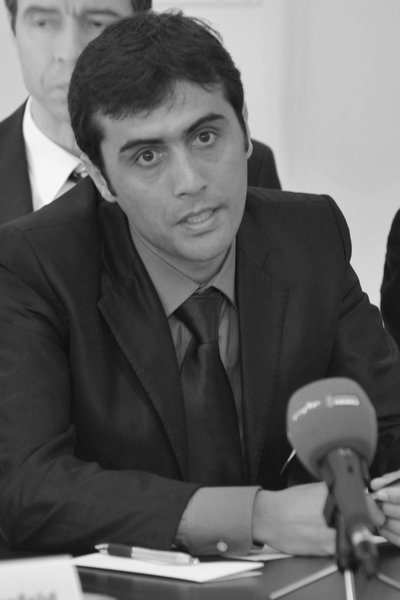
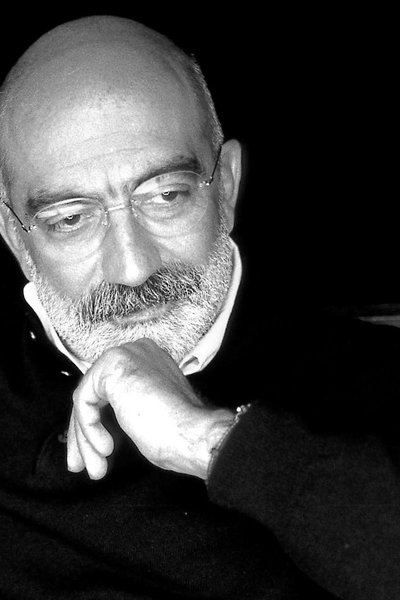
Dušan Miljuš
Roberto Saviano
Roberto Saviano, who was born in a small town near Naples, the stronghold of the Camorra, has focussed – for years on end – both his work as a journalist and as a writer on this criminal organisation. In 2006, he published the faction book Gomorrha, which has also been adapted for screen. In it, he in detail portrays Mafia’s underhand methods, its economic and political entanglement, and, moreover, speaks out about culprits and rackets. One certain Camorra clan put a death sentence on him and threatened to kill him several times. Thanks to writer Umberto Eco and the Nobel Prize Committee who interfered on his behalf, Saviano is now under constant police protection, but has to change hideouts every other day. Despite many death threats, he presentet the four-part programme “Vieni via con me” (“Come away with me”) together with Fabio Fazio on Rai 3 in November 2010. Awards: – Saviano received many awards for his book Gomorrha, amongst others the Premio Viareggio, the most renowned literature award in Italy – 2011: Olof-Palme-Prize.
At the 2022 Sanremo Festival, Roberto Saviano performed a monologue on Falcone e Borsellino and also paid tribute to Rita Atria in his contribution.
Alan Johnston
Alan Johnston is the West’s only journalist permanently reporting from Palestine’s Gaza Strip since 2003 – a task including heavy personal risks. BBC’s Alan Johnston’s coverage of events there have been hailed both by colleagues and monitors for their calm tone and strict impartiality. On 12 March, 2007, the “Army of Islam” kidnapped and held him hostage for 114 days. The kidnappers demanded the release of Muslim prisoners in Great Britain. They released a video clip with Johnston being forced to wear an explosive belt in order to enhance the pressure on the British government. After his release on 4 July, 2007, Alan Johnston was awarded the Media Prize of Amnesty International’s British section. From 2011 to 2014 he worked as a BBC correspondent in Rome, since then Johnson has been working in Great Britain again.
Susanne Fischer
Susanne Fischer was reporting from Iraq since 2003 and has repeatedly proven lots of courage, daring and commitment. Besides this and commissioned by the British “Institute of War and Peace Reporting” (IWPR), she has been actively involved in training journalists since 2005. The IWPR promotes the development of a free press and media in numerous post-authoritarian states in the world. Workshops and seminars help to strengthen a journalistic expertise directed towards the promotion of free expression and critical coverage. Susanne Fischer, a resident of both Hamburg and Beirut, was head of IWPR’s office in Iraq – a task demanding courage that contributed towards developing independent media there. After three years, she is now heading IWPR’s office in Syria commuting between Damascus and Beirut.
Win Tin †
Win Tin was a Burmese journalist and writer who has been imprisoned in Burma for more than 18 years. Arrested in 1989 for subversion and anti-governmental propaganda, he has been sentenced to 3, 7 and 10 years of prison in subsequent, secrete and non-public trials. Win Tin was editor in chief of Hanthawati daily newspaper, banned in 1978. He wrote numerous critical essays, was a consultant to the Nobel Peace Prize winner Aung San Suu Kyi and a leader of the “National League for Democracy” (NLD). Reasons of his prolonged imprisonment have been: his efforts to inform the UN about human rights violations in Burmese prisons and his unbending will not to renounce the NLD. On 23 September 2008, he was released from prison. He then tried to re-organise the NLD. He also visited families of political prisoners to give them moral support. In 2001 and 2006, Win Tin received the UNESCO-Prize for Freedom of the Press and the Human Rights Award of Reporters without Borders. On 21 April 2014, he died at the age of 84.
Akbar Ganji
Akbar Ganji was arrested in Tehran after he had participated in an Iran conference of Berlin’s Heinrich-Böll-Foundation in April 2000. He was sentenced to ten years imprisonment and five years expatriation because of “propaganda against theocracy, danger to the safety of the state and insult of the state leadership” because he had blamed the Iranian regime for the assassination of political opponents and intellectual dissidents in numerous articles. Later on, this sentence was reduced to six years. However, Ganji was not silent. In a widely noticed piece of writing composed in prison, Ganji denounced the structures of the Islamic state and the violation of human rights. As a consequence his conditions in prison were tightened. He was tortured several times and went on hunger strike in protest. He resisted to take an oath of loyalty to the head of the state. Ganji was discharged from prison 18 March, 2006. Awards: – 2010 appointment to the “hero of the freedom of the press” by the International Press Institute in Vienna for “his courage in the struggle for justice and freedom of the press”
Vasil Ivanov
Vasil Ivanov is one of only few investigative journalists in Bulgaria. His apartment in the Bulgarian capital Sofia was devastated by a bomb in April 2006. He works with the private TV station “Nova”. Within the last two years he revealed several acts of corruption within Bulgarian elite and compiled related facts for his TV station. He exposed a notary who legalised motor cars stolen in Western Europe, reported on corrupted physicians in public hospitals and on police officers who cooperated with pimps. With a candid camera Ivanov took pictures of serious deficiencies and mistreatments of prisoners committed by the wardens in Sofia’s prison who organized “gladiator fights” there. The bomb attack heavily devastated his apartment and wounded his grandmother. The Bulgarian National Assembly condemned the attack and the journalist was given personal protection. Ivanov who claims to know who the assassins are continues his investigations despite numerous threats.
Wolfram Weimer
Dr Wolfram Weimer filed a lawsuit at the German Federal Constitutional Court as editor in chief of Cicero magazine in order to obtain a ruling against the weakening of the freedom of the press. He was editor in chief of Cicero. After a report on terrorists in which Cicero quoted from an internal document of the Bundeskriminalamt (German Federal Criminal Police Office), law enforcement authorities searched the editorial office as well as a flat of one employee of Cicero in 2005. This action, encouraged and supported by the then German Minister of Internal Affairs Otto Schily, was justified with the accusation of betrayal of state secrets. Two courts rejected Weimer’s complaint, only the Bundesverfassungsgericht (German Constitutional Court) agreed with his complaint on February. The judges decided that the mere publication of a state secret by the press is not sufficient for a shakedown of editorial offices. It is only legal if there is clear evidence that a journalist has aided and abetted the breach of secrecy and that a person pledged to secrecy has intended the publication. Constitutionally prohibited are “searches and seizures in an investigation against members of the press if they are used exclusively or mainly for the purpose of determining the informant.” “This is a decision which means more legal certainty to investigative journalism. It also strengthens freedom of press in a time in which it is increasingly limited due to perceived or actual security concerns”, said Stephan Seeger, Managing Director of the Foundation.
In 2010, Weimer was editor in chief of Focus magazine for a short while. In 2012, he founded the Weimer Media Group which publishes several kinds of business media.
Wolfram Weimer has been Minister of State to the Federal Chancellor and Federal Government Commissioner for Culture and the Media since 2025.
Alina Anghel
Alina Anghel had to suffer physical violence as a consequence for relentlessly revealing corruption and mismanagement of the governing Moldavian elite around President Woronin. Since 1997 Alina Anghel has been working as a journalist in Moldavia. First, she was working for the daily Flux in the policy department, then for the weekly Timpul. Her articles (e.g. “Luxury in a land of poverty”) from 2004 relentlessly describe the machinations of corrupt elites and effects of mismanagement on the daily life of the citizens. A concrete case was the trading with Skoda cars. 42 business cars were delivered to the Communist government without any official order. Alina Anghel’s corruption stories led to a two million Dollar action for damages by the government against Timpul which had to close subsequently. An offer of the ruling powers to discontinue the action in exchange for a public apology for Anghel’s reporting, had beed refused by the editors of the paper previously.
The investigative journalist had to physically experience the governmental pressure on dissidents: After Alina Anghel had been threatened by telephone calls for several months, she was knocked down close to her home in June 2004, as Martina Bäurle, director of the Hamburg Foundation for the Politically Persecuted confirms. The assault took place one day before the hearing in the action for damages against Timpul. Although possible suspects were arrested, the police filed the incident away as raid, despite the short time between the raid and the hearing, which might indicate a relationship between the incidents. Alina Anghel still suffers from the wounds on her body, as Rubine Möhring, director of Reporters Without Borders in Austria reports. There is no freedom of press in Moldavia. Most newspapers are financially dependent on Woronin’s Communist regime. Inconvenient journalists are banned with information embargos by the authorities and solidly impeded in their work. Shortly after the closure of Timpul, the editors published the new newspaper Timpul de dimineata (Morning Post). For the time being, Anghel works as deputy editor in chief of this newspaper. In ealry 2005, Alina Anghel was awarded the “Press Freedom Prize” by Reporters Without Borders. Since May 2005 she has been a guest of the Hamburg Foundation for Politically Persecuted, which together with the Luise Rinser Foundation enables Alina Anghel to live in Germany for a while. Her stay was supposed to end in October, but there was a wave of arrests in Moldavia right before her planned return so that her stay was prolonged until mid December. After her return she wants to continue to work as a journalist.
Fabrizio Gatti
Fabrizio Gatti is an undercover investigative journalist well-known around Europe who revealed disastrous humanitarian conditions in the Italian asylum camp on the Mediterranean island Lampedusa in the beginning of October 2005. Fabrizio Gatti is an undercover investigative journalist well-known around Europe. He has become known by several reports on the milieu of socially weak people over recent years. In the beginning of October 2005, Gatti revealed disastrous humanitarian conditions in the Italian asylum camp on the Mediterranean island Lampedusa. Gatti personated himself as refugee and smuggled into the camp. He authentically reported in the known Italian paper l’Espresso on disastrous sanitary conditions, a camp hopelessly overcrowded and violence against refugees. The organization “Doctors Without Borders” also thinks the Lampedusa camp is totally overcrowded. Alessandra Oglino who knows about the capacities of the camp from descriptions of her colleagues from 2002 to 2004 always watches the number of arriving and accounted refugees for her organization and reasons the number of refugees in the camp is twice as high as officially stated. Oglino confirms that Gatti had really been in the camp. And it’s also a matter of fact that neither humanitarian organizations nor parliamentarians were allowed access to the camp. Gatti’s under cover investigations were the only possible way to confirm the suspicion of disastrous conditions in the camp.
Awards:
- 2007 European Journalist Award for his report on illegal pickers in Apulia
- 2008 Literature Award Tiziano Terzani for his book Bilal: An illegal on his way to Europe
- 2014 Human Rights Award of the Pro Asyl Foundation
Volker Lilienthal
Professor Volker Lilienthal revealed by intensive investigations over years – even against fierce judicial resistance – that there is surreptitious advertising in the public TV station ARD. Professor Volker Lilienthal has been working as editor at the Evangelic News Service (epd) in Frankfurt/Main. Since 1997 he has been deputy head of epd medien and since 2005 until 2009 it’s editor in charge. In April 2009, he was appointed professor of quality journalism at the University of Hamburg. Since January 2012, he is also co-editor of the journalism magazine message. Lilienthal revealed the so-called scandal of surreptitious advertising in the public TV station ARD (First German Television). Despite of all intimidations he had done partially covered investigations over many years and revealed illegal practices. When the agency “H.+S.” which was significantly involved in surreptitious advertising found out about Lilienthal’s investigations, it initiated legal proceedings against him. That impeded him in his work for almost two years. A judgment of the Regional Court of Munich prohibited him to publish his findings. In case of violation he would have to pay a penalty of 250,000 Euros. It was the Higher Regional Court of Munich which only annulled the judgement in January 2005 and allowed Lilienthal to continue his investigations. In June this year his report “The Bavaria-Connection” was published in epd medien and in the journalist magazine. In the meantime the ARD published a revision report that completely confirms the epd investigations. The “Bavaria Film” company, owned by majority by four ARD stations violated broadcast legislation by having allowed surreptitious advertising over the past ten years. Günter Struve, ARD program director says: “First, I didn’t believe it, because I couldn’t imagine that such a big thing is possible without noticing it in our company.” Fritz Pleitgen, WDR director now acknowledges Lilienthal’s achievement: The journalist has done a “deserving work”.
Since March 2019, Professor Volker Lilienthal has been a member of the Administrative Board of "Deutschlandradio" public broadcasting as an expert elected by the Radio Council.
Anna Politkovskaya †
Anna Politkovskaya was a Russian correspondent of the newspaper Nowaja Gazeta. Despite of great resistance and the danger of her life she didn’t give up the reporting on the Chechen conflict. Russian correspondent Anna Politkovskaya had covered the Chechen war for the newspaper Novaya Gazeta since 1998. In her articles and books she described the numerous instances of cleansing, rape, execution and torture in this battered region, putting herself in great danger while doing her job. A mother of two children she repeatedly received threats on her life in Russia and had to be placed under police protection. In the Moscow musical theatre hostage crisis in 2002 she acted as mediator. In September 2004, when she prepared to cover the hostage taking in Beslan, Anna Politkovskaya was poisoned in an attempt to stop her from publishing reports contrary to the official version. However, two weeks later she was back on the job. She believed that “risk is part of the job. Either you do your work, knowing what you’re in for, or you leave it altogether.” Anna Politkovskaya was shot in Moscow on October 7th, 2006.
Awards:
- 2007: Guillermo-Cano-Prize (UNESCO-Prize for freedom of press; posthumously)
- 2007: Geschwister-Scholl-Prize (posthumously)
- 2007: Honorary membership of the Erich Maria Remarque-Society, Osnabrück (posthumously)
A park in Milan, Italy has commemorated Anna Politkovskaya since 2013, and Ferrara has Via Anna Politkovskaya. A street in Tbilisi is also named after her. Half a dozen memorial sites exist in France.
Since she had not previously been honoured in Russia, a garden opposite the editorial office of Novaya Gazeta was dedicated to her in Moscow in 2018. The ambassadors of Germany, Spain, Latvia, Great Britain, and a representative of the US Embassy planted flowers in the "Anna Gardens."
In October 2024, the square in front of the Zeit Foundation in Hamburg-Rotherbaum was named after Politkovskaya, and a memorial stone was unveiled.
Britta Petersen
Britta Petersen as chairwoman of the organization “Initiative for a Free Press” which she founded herself Britta Petersen supports the training of journalists and the development of a free press in Afghanistan. Britta Petersen worked as a reporter for Financial Times Deutschland in Afghanistan in January 2002. There she realised that our understanding of journalism is not applicable in this war-torn and crisis-ridden country. In September 2003 she founded the “Free Press Initiative” (IFP) which unites experienced journalists who support the development of independent media by providing training to beginning reporters. Britta Petersen coordinates the organisation’s work not only in Kabul but also in the provinces, which involves a great deal of personal risk. In a first statement she said the award was a recognition of IFP’s activities. It will help achieve the joint goal of creating a nationwide independent newspaper.
From 2005 to 2010, she lived in New Delhi, India, as an author and reporter of "Welt" newspaper. From mid-2010 to 2014, she headed the "Heinrich Böll Foundation's" office in Lahore, Pakistan. From 2014 to 2020, she served as a senior fellow at the "Observer Research Foundation", an Indian think tank in Delhi, where she primarily researched India-Europe relations. Since 2020, Petersen has worked as a consultant at the "German Society for International Cooperation" in Bonn. Since March 2024, she has also headed the "Rosa Luxemburg Foundation's" office in New Delhi.
Awards:
- 2006: “Gisela Bonn Prize” from the Indian Council for Cultural Relations (ICCR), for significant contributions to the German-Indian relationship
Hans-Martin Tillack
Hans-Martin Tillack was correspondent of Stern magazine in Brussels where he revealed several corruption scandals in the institutions of the European Union. Hans-Martin Tillack was a Brussels correspondent of Stern magazine from 1999 until mid-2004. Since 2005, he worked as a reporter in Berlin. His reports on corruption and democratic deficits within the EU bureaucracy caused widespread interest and lead to repeated harassment against him. Following his story on corruption in the EU statistical office Eurostat in March 2004, Tillack was arrested by Belgian police on the grounds of allegedly bribing officials. His office was searched while he was being detained and interrogated for hours without being able to contact anybody. This set off a wave of worldwide protests by major media and journalist organisations. Relying on the “Freedom of Information Act”, Tillack succeeded to obtain the name of the private sponsors of the German federal ministries in 2007. From now on, the German federal government had to officially publish the names of the grantors.
Since 2021, Tillack is chief reporter of Welt newspaper. Following a controversial guest article by Elon Musk in Welt am Sonntag newspaper, in which Musk promoted the AfD, media reported in January 2025 that Tillack would leave Welt.
Seymour Hersh
Seymour Hersh has been one of the most renowned US investigators since his revelations on the Vietnam war (My Lai). Last spring he revealed that the torture of prisoners in the Iraqi prison Abu Ghraib goes back to orders by the US government or the Pentagon. Seymour Hersh received the Leipzig Media Award as a lifetime achievement award. As author for The New Yorker and winner of the Pulitzer Prize he began his career writing about the My Lai massacre during the Vietnam War in 1969. Later, Hersh also revealed the complicity of Henry Kissinger, Nixon’s National Security Advisor, in ordering the carpet bombing of Cambodia, and the CIA’s involvement in the coup against socialist President Allende of Chile. When the story broke about incidents of torture at US military prison Abu Ghraib in Iraq, Hersh furnished proof that these were ordered by the US government and the Pentagon. The jury believes that “Hersh represents the guilty conscience of American journalists who increasingly and uncritically publish official government statements.”
Hersh's publications from 2013 onwards on poison gas attacks in Syria, in 2015 on the killing of Osama bin Laden and in 2023 on the attack on the Nord Stream pipelines have been criticized more heavily than his earlier work due to his methodology and use of sources, not only by government agencies as before, but also by the media.
Awards:
- 2005: The Ridenhour Courage Prize
- 2007: Democracy Prize of the Blätter für deutsche und internationale Politik (Newspaper for German and international policies)
- 2017: Sam Adams Award
Journalisten helfen Journalisten e. V.
ournalisten helfen Journalisten (Journalists help Journalists association) provides assistance to colleagues experiencing difficulties, who are obstructed in their work or maltreated, and also to dependants of killed journalists. Journalisten helfen Journalisten (Journalists Help Journalists association) received the Media Award for their courageous and selfless commitment to freedom of the press, for their support to those in need, those hindered in their work, to their mistreated colleagues and the families of journalists who have lost their lives in the line of duty. The non-profit organization was founded in 1993 by Christiane Schlötzer-Scotland. “We were wrong. Unfortunately.” It’s unsual for an association to comment on its ten-year anniversary in such a way. The members of Journalists Help Journalists did so one year ago. “We thought and hoped the society would only be around for a short time,” they said, recalling its founding in 1993. “We wanted to offer our support to a few of our needy colleagues in the form of material donations.” It were mostly Munich journalists who wanted to help, quickly and unbureaucratically, when war broke out in ex-Yugoslavia. The society’s “base camp” is located in Munich, operated by Carl W. Macke. Its founder, Christiane Schlötzer-Scotland, says it was an “assignment of despair” that drove her at the start, when her husband Egon Scotland was killed shortly before by a sniper’s bullet while investigating for the Süddeutsche Zeitung in the crisis area of Croatia. His death made clear that the era of immunity for journalists in conflict areas was over.
More than 800 journalists have been killed in the line of duty over the last fifteen years, several hundreds are incarcerated every year around the world, and many are tortured. Western media usually only report about spectacular individual cases, during wars the West is directly involved in, though most journalists are killed not in combat but in reprisal for their reporting. This usually happens in crisis regions forgotten by the rest of the world. Journalists Help Journalists is committed to fight this forgetfulness. The association currently has more than 100 members in Germany, Italy and Austria. For chairman Roman Arens, its members are the group’s real asset. Its strength lies not in financial clout but in its unbureaucratic network of professional colleagues. The association helps journalists to get published in German-language media, provides important contacts, or has journalists on research trips distribute material donations. “We know how journalists work,” says Schlötzer-Scotland. “We don’t want to hand out alms but to show our solidarity. Not with words but by giving our colleagues direct support.” The group intervenes where no official aid channels exist. For example, they gathered money for a young reporter in Sarajevo in need of a kidney transplant or help imperiled colleagues flee from crisis areas, most recently from Afghanistan, Iran and Tadjikistan. Independent newspaper founders in Iraq received spontanious start-up funding. And the Bosnian journal Start, recently honored by Amnesty International, survived not least thanks to Journalists Help Journalists. That you seldom hear or read about their projects is no wonder, since the group thinks of itself as a rapid deployment force. They prefer to keep a low profile, with as little media hype as possible. One focus of the society’s work is supporting the families of slain journalists. Contrary to the group’s initial expectations, crisis, war and tragedies have been on the rise since it was founded. “The association” the journalists say, “is more important than ever nowadays.” Unfortunately they’re right.
James Nachtwey
James Nachtwey has been travelling the world’s crisis spots for more than twenty years now and is arguably the most famous war photographer of our age. James Nachtwey decided to become a professional photographer in the early 1980s. But he didn’t just want to take pictures of anything; he wanted to be a war photographer. By his own admission, the decision had a lot to do with the Vietnam War and the web of lies surrounding it, how American politics used the war to “dumb the people down.” Nachtwey has meanwhile been traveling the world’s war zones for over two decades. His first photo reportage in 1981 took him to Northern Ireland. The images he captured there of imprisoned IRA members on hunger strike and their sympathizers eventually went around the world. Northern Ireland was followed by coverage of wars, civil wars and civil unrest. He has worked in El Salvador, Nicaragua, Guatemala and Lebanon. He has photographed in the West Bank, the Gaza Strip, Indonesia, Thailand, India and Sri Lanka, Afghanistan, the Philippines, South Korea, Somalia, Sudan, Rwanda, South Africa, Russia, Bosnia, Chechnya, Kosovo, Romania, Brazil, and time and again his homeland. He worked as a truck driver, sailed on merchant ships, and filmed news reports for local television stations in order to finance costly equipment. Nachtwey’s first jobs were not assignments; he sought out the sites himself and did what he thought was right and meaningful.
Two years after his first reportages, he was already working for one of the most renowned news magazines in the world, Time. From 1986 to 2001 he was a member of the world-famous Parisian photo agency Magnum. Since 2001, he worked for the “Agency VII”, of which he is a co-founder and which he left in 2011. Since then, he is working for The New Yorker. Nachtwey’s work has been published and exhibited in museums around the world. The Media Foundation of Sparkasse Leipzig presented an exhibit of his work in May 2004 in its “Kunsthalle.” The greatest recognition of his work to date came from Swiss director and filmmaker Christian Frei in 2001. Frei made a documentary film about Nachtwey which was nominated for an Oscar right after completion and won the Pulitzer Prize in the summer of 2004. The film shows an intrepid war photographer in action who for the past twenty years has had a formative influence on the way we see wars. Nachtwey’s work shows us the horror which warring parties seek to cover up and silence.
Awards:
- 2012: Dresden-Award
- 2016: Princess of Asturias Award
La Voz de Galicia
La Voz de Galicia largest newspaper in Galicia, Spanish coastal region where the “Prestige” tanker sank in November 2002, uncovered the events surrounding the spill with great journalistic commitment. La Voz de Galicia (The Voice of Galicia) was quick to get involved, with critical and farsighted reports challenging the attempts of the government and local authorities to downplay the catastrophe. Its editors resisted political pressures and demonstrated the strength and necessity of a free and independent press in exemplary fashion. “We were dealing with goverment officials who never asked questions, never listened, and never spoke to us. Their incompetence was matched only by their hostility towards their fellow citizens,” fumed popular Spanish writer Manuel Rivas on the anniversary of one of Europe’s largest environmental disasters. “They still don’t realize the damage they’ve done. They sank the ship in their own shame. They mocked their fellow citizens and thought that the truth had spilled in the sea, along with the heavy oil.” That the ailing oil tanker “Prestige” sprang a leak off the Atlantic coast of Spain during a storm in early November 2002 was the fault of neither the government of Galicia nor that in Madrid. Yet much of what followed, and which turned the incident into a “maritime Chernobyl” for the local population, was the result of carelessness, ignorance and thoughtlessness. Despite the 77,000 tons of highly toxic cargo on board, the government responded by simply hauling the bothersome tanker out of sight. The oil tanker eventually sank, causing unprecendented levels of contamination. The flawed decision was then covered up, along with the dangers that lay ahead.
Journalists were fordbidden from viewing the site or taking aerial photos of it, and their questions were left unanswered. The majority of Spanish media outlets would have simply acquiesced or let themselves be hoodwinked – not least because public media in Spain are subject to strict government controls, many regional newspapers are dependent on local authorities and national papers are too far away and too partisan in their orientation. But this time La Voz de Galicia, the region’s highest circulating newspaper, accepted the challenge. Despite the opposition of authorities, they sought the objective facts and didn’t fall for disinformation campaigns or the government’s attempts to shrug it off. The La Coruña-based paper began by doing what the authorities should have done: they consulted with shipping experts, maritime biologists, the captain of Prestige, and local fishermen. In a neutral, matter-of-fact tone, its journalists refuted the attempts of people in high positions to play things down, uncovered inconsistencies, and accused the government of making false statements. The oil would neither rest harmlessly on the bottom of the ocean nor remain in the hull of the Prestige, wrote La Voz; the government’s emergency aid package was sufficient neither in terms of personnel nor money; the economic consequences would be far worse than predicted; the disaster could have been greatly averted by reacting in a professional manner; and even one year after the incident there was still no suitable contingency plan for a similar event in the future. The newspaper became required reading for informed individuals in Galicia and the key source of information for media agencies around the world. It proved that freedom of the press is something that needs to be sought out actively, time and again – even in the established democracies of Western Europe.
Netzwerk Recherche e. V.
Netzwerk Recherche (Network Research Association) is committed to improving the quality of research and investigative journalism in Germany. Netzwerk Recherche is an association of German journalists for the promotion of investigative journalism and a culture of research. The network was founded in 2001 as a non-profit society and has no political affiliations. Dr. Thomas Leif, former chairman of the network, gives the following reason for the society’s founding: “Good investigative journalism is essential for freedom of the media.” The network and its initiatives want to strengthen research in day-to-day journalism and promote more extensive research in journalistic training. The network provides research grants of several months for in-depth work on previously neglected but socially relevant issues, as well as organizing seminars for the training and continuing education of journalists. Its media prize “Leuchtturm” (“Lighthouse”) honors exceptional research of particular relevance to public discourse. The “Geschlossene Auster” (“Closed Oyster”) is a negative prize awarded annually (to Otto Schily, German Minster of the Interior, in 2002) for restricting media freedom, and serves as a reminder of the basic principles of freedom of the press. The Foundation Council of the Media Foundation aims to support this initiative by awarding it the “3rd Prize for the Freedom and Future of the Media” with a purse of 7,500 euros. Netzwerk Recherche is particularly consistent with the Media Foundation’s philosophy and its dedication to quality assurance in the field of journalism. www.netzwerkrecherche.de
Significant events:
- 2004: Separate bill for a federal Freedom of Information Act. Following this initiative, a general right to inspect files at federal public bodies was passed in 2005
- 2006: Adoption of a separate media code as an ethical guideline, calling for a strict separation of journalism and PR (revised in 2016)
- 2014: Initiative to promote non-profit journalism, which became an independent forum for non-profit journalism
- 2016: Launch of the Grow scholarships for founders in the field of non-profit journalism, together with the Schöpflin Foundation
- 2019: Hosting of the Global Investigative Journalism Conference in Hamburg, with around 1,700 journalists from 130 countries
- 2020: Founding of the Data Journalism Working Group
- 2022: Founding of the Social Journalism Working Group
Daoud Kuttab
Daoud Kuttab is a Palestinian journalist and director of the Institute of Modern Media at Al-Quds University in Ramallah, Palestine. He dedicates his work to the fight against Palestinian and Israeli censorship and for freedom of the press in the Middle East, having reported on the Israeli-Palestinian conflict for over twenty years now. He is often put under pressure and subject to hostility from his own Palestinian camp. Kuttab established online media outlets in order to circumvent Palestinian censors. He is co-director of Internews Middle East, an NGO in Jerusalem promoting independent media and journalists in the Middle East. He is also the founder of the Arabic Media Internet Network (AMIN, www.amin.org), providing journalists in the Arab world with uncensored news content on the Web. Daoud Kuttab likewise founded the Jerusalem Film Institute and the first Internet radio station in the Arab world, AmmanNet (www.ammannet.net). Between 1966 to 2007, he also led the Institute of Modern Media at Al-Quds-University, which he himself founded. Currently, he is General Director of the non-profit organisation Community Media Network (CMN), which is dedicated to the promotion of independent media in the Arab region. His unflagging support for freedom of the press and speech has played an important role in developing independent Palestinian media and has helped spread these liberty rights in the entire Middle East. This was reason enough for the Foundation Council of the Media Foundation to award Daoud Kuttab and Gideon Levy the “1st Prize for the Freedom and Future of the Media” with a total purse of 15,000 euros. Only when the critical self-appraisal of one’s own behavior goes before assigning the blame to others will peace be possible in the Middle East. Gideon Levy and Daoud Kuttab are exemplary models of this approach. www.amin.org
Daoud Kuttab sits on the board of the International Press Institute, which lists him as the "Director General, Community Media Network" and "Founder, AmmanNet, Jordan".
Gideon Levy
Israeli newspaper correspondent Gideon Levy and his colleague on Palestinian television Daoud Kuttab report from the occupied areas of Palestine, focusing not on their respective adversaries but on “their own people.” Gideon Levy is an Israeli journalist from Tel Aviv and works for the Haaretz daily as editor in chief of its weekend supplement. He is one of the few Israeli journalists to report on the lives of Palestinians under Israeli occupation and is the frequent target of attacks by Israeli readers and colleagues because of his critical reporting. Gideon Levy investigates in Palestinian areas, giving Israelis a view of the situation unhindered by military censorship. His reporting often sides with Palestinian victims. He tells, for instance, about the Palestianian farmer who was shot by Jewish settlers on his own land and now depends on a wheelchair; or about the widow of a Fatah leader who was liquidated by Israeli security forces, etc. Haaretz is being put under pressure to silence Gideon Levy. This was reason enough for the Foundation Council of the Media Foundation to award Gideon Levy and Daoud Kuttab the “1st Prize for the Freedom and Future of the Media” with a total purse of 15,000 euros. Only when the critical self-appraisal of one’s own behavior goes before assigning the blame to others will peace be possible in the Middle East. Gideon Levy and Daoud Kuttab are exemplary models of this approach.
Awards:
- 2007: Euro-Med Journalist Prize for Cultural Dialogue
- 2012: Peace Through Media Award at the International Media Awards
- 2015: Olof Palme Prize from the Olof Palme Foundation for his "Fight Against Occupation and Violence"
- 2020: Ari Rath Honorary Prize for Critical Journalism from the Bruno Kreisky Forum
- 2021: Sokolow Prize from the City of Tel Aviv
Works:
- Twilight Zone - Life and death under Israeli occupation. 1988-2003. (2004)
- The Punishment of Gaza (2010)
Volodymyr Mostovy
Volodymyr Mostovy supports the development of a politically independent journalism in his country. Volodymyr Mostovy, former editor in chief of the renowned Ukrainian weekly Zerkalo Nedeli (Weekly Mirror), is committed to politically independent journalism in Ukraine. He also headed the Commission on Journalistic Ethics, armed with a journalistic manifesto in its fight against political despotism under the government of President Leonid Kuchma. Mostovy has consistently resisted censorship and the enforced conformity of Ukrainian media despite being threatened and spied on. Ukraine is currently considered one of the most dangerous countries in the world for reporters, with four murders in 2002 alone. The government puts pressure on “unruly” publications, e.g., by forcing editorial offices to pay unreasonably high rents or through outright prohibitions on financial support from Western organizations. In a situation like this, fearless journalism of the kind practiced by Volodymyr Mostovy, a staunch defender of freedom of speech, is more important than ever. A journalist who expresses painful truths always needs the backing of his editorial department. Volodymyr Mostovy was an editor in chief who not only encouraged his colleagues to face the considerable challenges and responsibilities of their profession. He is a model for an entire generation of journalists who fight every day for open and unbiased reporting in Ukraine, free of political influences. This is why the Foundation Council has awarded Volodymyr Mostovy the “2nd Prize for the Freedom and Future of the Media” with a purse of 10,000 euros.
Grigorij Pasko
Russian journalist Grigory Pasko reported on the ocean disposal of chemical and nuclear waste by the Russian navy in the Sea of Japan and was convicted of high treason and espionage.
The military journalist Pasko is a ranking officer (Captain 2nd Class) and was given the task by Russian navy leaders in the early 1990s of reporting on environmental offenses by the military. He repeatedly ran into walls of silence, but nonetheless made a startling discovery: in 1993 Pasko filmed an operation in which the navy illegally dumped radioactive and chemical waste into the Sea of Japan. The film was shown on Japanese state television. That’s when the “Pasko Case” began. Starting in 1997 military prosecutors and Russia’s domestic secret service, the FSB, attempted to put an end to the unwelcome truth-seeker’s career as a journalist. The initial charge was “treason” or “disclosing military secrets.” Ultimately they concocted a scenario in which national security interests were threatened by reporting altogether. Twenty-one months of pretrial detention could not break Pasko’s will, however. He refused an amnesty after being convicted. Pasko wanted acquittal and was entitled to it by law. Yet the military court of appeal in Vladivostok saw things differently and sentenced the journalist to four years of prison camp in December 2001 because of alleged espionage. For Amnesty International, the “Pasko Case” opened up a new chapter in restriction of freedom of expression in Russia. As early as 1998, with the case of navy captain Alexander Nikitin in St. Petersburg, attempts were made to suspend freedom of speech with regard to the heated issue of nuclear waste. The most recent event to underscore the obstruction of freedom of speech in Russia is the shutting down of state-run TV 6, the last national television station critical of the government. In 2003, Pasko was released from prison. Because of a severe adhesion-related disease, he had to be treated in Germany in 2008. In 2007, he received the special prize of the “Erich-Maria-Remarque-Friedenspreis” (“Erich-Maria-Remarque-Peace-Prize”) for his prison diary "The Red Zone".
Jolana Voldánová
was the face and voice of an editors’ strike against the attempts of politicians to massively curb independent reporting. It all began on 12 December, 2000, when the Czech Television Council dismissed the director of public broadcaster CT, Dušan Chmelícek, after less than a year in office. A new director, Jiří Hodac, was appointed the very next day. News editors, in particular, were not happy about the change. Hodac and his news director Jana Bobošíková were not well-known for shielding editors from party-political influences. Prevailing laws stipulated that the nine-member television council be appointed by the parliamentary parties in power, meaning the council would ultimately reflect the distribution of power in parliament. In other words, the media was liable to political influences.
“We need a new law,” the editorial staff concluded. The editors of CT decided to go on strike, occupying network headquarters, especially when the new director tried to cancel controversial programs. The striking editors - honored here collectively in the person of Jolana Voldánová - achieved their goal: after 51 days of courageous protest they succeeded in deposing a director who had been appointed for political reasons. In addition to the resignment of Jiří Hodac and Jana Bobošíková, a new television council elected by civilian groups began its work in May 2001 following a legislative initiative by the Czech parliament. The real heros are the committed editors who, with little regard for their personal interests, defended freedom of speech and the press in Czech public television. Jolana Voldánová was a participant in this movement and its public face. Born on 12 January, 1969, Jolana Voldánová began working at Czech state television in 1993. Working first as an editor, she became a news anchor in 1995. In May 2012, she started her own talk show on Czech Broadcast. Since 2014, she is presentator of the show “Je jaká” of the Czech broadcasting station “Dvojka”.
Since 2016, Voldánová has hosted the program "Kafe s Jolanou" for the news website Aktuálně.cz, where she interviews celebrities. A selection of the interviews was published as a book by Grada Publishing in 2018. In 2021, she served as the official spokesperson for the 2021 Census Project.
Simone Wendler
revealed corruption scandals in Cottbus’ real estate companies and brought them to the public’s attention. Wendler, editor in chief of Lausitzer Rundschau since 1 October, 2000, was under massive attack. The reason was her investigative journalism in mid-2001 concerning corruption and frequent irregularities in the municipal housing office of Cottbus. The city was up in arms. Accusations, protests of innocence, calls for objectivity and renewed accusations dominated the political agenda of this city in the Lausitz region. In late 2000, the courageous journalist had uncovered “You scratch my back, I’ll scratch yours” type rackets, dubious connections going back to the days of communist East Germany, and a coterie of individuals who had once worked full or part-time for the Ministry of State Security and were now in the corridors of power of municipal administration. National media and the Brandenburg Ministry of the Interior took interest in the “Case of Simone Wendler.” The chief reporter for the Lausitzer Rundschau, who’d been raising eyebrows for years with publications on a variety of contentious issues (the real estate agency Aubis, the neo-Nazi scene, waste racketeering), had been put under massive pressure from anonymous sources because of her exposés into the shady practices of the Cottbus housing office. Her cell phone’s voice mail contained a death threat. She was spied on in her private life, even photographed from moving vehicles, and was later accused by prominent local officials of “airing dirty laundry.” Despite massive outside pressure, Simone Wendler did not abandon her quest for the truth. Simone Wendler studied chemistry and worked as a chemist prior to German reunification. She became active in politics and journalism in 1989, in the events surrounding the fall of the Wall. In 2002, she received the 2nd prize of “Wächterpreis der deutschen Tagespresse” (“Guardian Prize of the German Daily Press”).
In 2013, Simone Wendler was awarded the German Journalists Association's "The Long Breath" journalism prize for her persistent research on right-wing extremism in her region.
David Protess
investigates dubious death sentences in the United States with the help of his students. His work has resulted in a number of appeals and a moratorium by the governor of Illinois.
Professor David Protess
David Protess is professor of journalism at the Medill School of Journalism of Northwestern University in the State of Illinois. His research in recent years has focused on the role of the media in social policy, media coverage of race issues, and the relationship between media and the law. Protess himself became the focus of international media attention through his investigative journalism, working with his students to help condemned innocents regain their freedom. His book A Promise of Justice recounts how they succceeded in exposing judicial errors. The book won him the Investigative Reporters and Editors Award as well as a Pulitzer Prize nomination. The professor and his students have meanwhile saved the lives of three individuals. Seven more have been released from prisons in the State of Illinois as a result of their work. Each year Protess receives thousands of letters from allegedly innocent convicts and their families asking him to take up their cause. Protess is a forceful opponent of the death penalty. He was seven years old when Ethel and Julius Rosenberg were condemned and put to death for espionage. The hype and hoopla surrounding the execution was repugnant to him even back then. Later, as a cub reporter for the Chicago Lawyer and as research director of the Better Government Association, Protess fought recurrent battles against injustices in the legal system. His weapons were always journalistic: questioning, scrutinizing, investigating, and questioning once again.
David Protess retired in 2011. Since then, he has directed his Chicago Innocence Project.
Renate Flottau
Renate Flottau reported on the war in the Balkans as a Spiegel magazine editor for many years, gaining particular renown for her “War Diary”.
Through her work Renate Flottau has illuminated issues which are both alien and distant to most people in Germany. She has aroused sympathy for the fate of Balkan people and accompanied a development that led to the fall of the Serbian regime with strong personal commitment. By her example she showed that the freedom of media lives because of the commitment of those who believe in it – wherever they may live. The personal risk is the prize she is willing to pay for truth. But this was the only way to accomplish, what only few succeeded in on the Balkans: writing authentic reports nourished by her own opinion and her knowledge of the countries, their people and their suffering.
Thomas Mayer
former editor in chief of the Leipziger Volkszeitung, initiated the Leipzig-based fund-raising drive “Kosovo Relief” in 1999 and personally took part in the relief-aid transports.
The fundraiser started by Thomas Mayer is symbolic for his sensitivity to injustice and truthfulness as well as for his journalistic work, which has always focused on the - ever vulnerable - human being. Thus, in the years before the Kosovo conflict he reported on the children of Chernobyl, street urchins in Bucharest and Moscow, Sinti and Roma in Transylvania, and land-mine victims in Sarajevo. In the same way, Mayer made a substantial contribution to the relief operation of the Leipziger Volkszeitung in cooperation with UNICEF.
Thomas Meyer
Easter 1999. The stream of Kosovar refugees makes headlines around the world, including the Leipziger Volkszeitung. The newspaper’s editor in chief, Thomas Mayer, resolves to become active and start a charity drive. Additional partners are quick to follow: Wolfgang Tiefensee (Lord Mayor of Leipzig), Sparkasse Leipzig, and publisher Nenad Popovic (Zagreb). Thomas Mayer organizes local operations, collecting a total of 350,000 deutsche marks in donations. With lightning speed, numerous relief programs come into existence. Apart from delivering aid supplies, which Mayer personally accompanies to their destination, or delivering a Jeep donated by Leipzig car dealers, he succeeds in rescuing from the crisis region the family of a former East German citizen married to a Kosovar. Writing about people, ordinary and famous, portraying their fates after sometimes perilous journeys and in a manner anything but sensationalist - this is what Thomas Mayer is all about. Even before the Kosovo conflict began he was reporting live on the children of Chernobyl, on street urchins in Bucharest and Moscow, Sinti and Roma in Transylvania, and land-mine victims in Sarajevo.
Thomas Mayer was instrumental in organizing and promoting the relief actions of the Leipziger Volkszeitung in cooperation with UNICEF. Thomas Mayer learned his profession “from scratch,” even though his career development might not seem like a linear progression (he began as a stage technician at the theater in Dresden). Journalism is his job and his calling. Even in the GDR he could test his moral courage on the job, for example, in a scathing article attacking the favoritism towards “BFC Dynamo” football club. “Oh no, I was no hero,” Mayer counters. And yet his ability to keep his personal fears under control, letting his curiosity and his love of the truth prevail, gives him the courage to face sometimes unpredictable occupational hazards. His wife Gudrun is a constant source of support and encouragement. The prizewinner has been working as editor in chief of the Leipziger Volkszeitung for over ten years now, tracking down stories between the lines. He enjoys the search for contemporary witnesses, especially those who have lived for nearly a century and have a unique story to tell - for example, refugees from Kosovo. Thomas Mayer retired in 2012.
Correctiv
Correctiv is a German investigative media company initiated by the journalist David Schraven and founded in 2014 as a non-profit Ltd. The work is financed through donations and grants from foundations and institutions. Much of the research is carried out in collaboration with newspapers, magazines, radio and television stations. In recent years, the counterfeiting of cancer drugs, the CumEx scandal, the structure of the German real estate market and right-wing extremist networks have been thematic focuses of Correctiv's work. Research into a meeting of right-wing extremist and ethnic-identitarian circles and the “master plan” discussed there for the “remigration” of foreigners living in Germany and Germans with migrant roots led to demonstrations for democracy, diversity and tolerance across Germany in early 2024. Correctiv or individual journalists and/or research have received numerous awards, including the Grimme Online Award in 2015 and 2019, the Otto Brenner Prize for critical journalism in 2018 and the Theodor Heuss Medal for special commitment to democratic politics (2023).
Sabine Adler
Sabine Adler studied journalism at what was then Karl Marx University in Leipzig. From 1987 she worked for the Magdeburg regional broadcaster at Radio DDR II public radio station. Between 1990 and 1993 she worked at radio ffn and then moved to Deutsche Welle public radio station. Since 1997 Adler has worked in various positions for Deutschlandradio's programs - with an interlude as Head of Press and Communications for the German Bundestag between October 2011 and September 2012 - including as correspondent in Russia, as head of the Berlin studio and, since 2012, as Eastern Europe correspondent in Ukraine, Belarus, Poland and the Baltic countries. Sabine Adler has published five books on contemporary Eastern European history, most recently “The Ukraine and us. Germany's failure and the lessons for the future” (2022) and “What will become of Russia? About a nation between war and self-destruction” (2024). German Medium Magazine named Sabine Adler “Political Journalist of the Year” in 2010, among other things. In 2015 she was awarded the Karl Hermann Flach Prize by the foundation of the same name.
Katrin Eigendorf
Katrin Eigendorf, born on 1 July 1962 in Tönisvorst, Germany, completed her high school diploma in Krefeld and studied journalism in Dortmund and Paris. She started her career as an editorial trainee at WDR (West German Broadcasting) in Cologne. She has worked as a foreign correspondent since the 1990s, including at ARD (First German Broadcasting) studio in Paris and as RTL correspondent in Moscow. Eigendorf has been active for ZDF (Second German Broadcasting) since 1999, including as a presenter of auslandsjournal extra, as a foreign correspondent in Moscow and as an international reporter, especially in war and crisis zones since 2018.
Her main areas of work include Russia, Middle East policy, Turkey and Afghanistan. In 2022 she published the book Putin's War - How the people of Ukraine fight for our freedom. Katrin Eigendorf has received many awards for her journalistic work, such as the "Hanns-Joachim-Friedrichs-Preis" in 2021 and the "Grimme Preis" in 2022 for her reports from Afghanistan, as well as the "Deutscher Fernsehpreis". German Medium Magazin named Eigendorf "Journalist of the Year" in 2022. In 2023, she was awarded the Augsburger Friedenspreis.
Roman Badanin
Roman Badanin, born in Kurgan in 1970, got to know the journalistic work in relative freedom from 1997 on at the independent newspaper Izvestia, after which Badanin worked in leading positions in Russian media such as Gazeta.ru as well as Western media in Russia such as Forbes.ru. Between 2014 and 2017, he encountered the increasing restrictions on media freedom as editor-in-chief of the news agency RBK and the government-critical TV channel Dozhd. In 2018, Roman Badanin, who studied at Stanford University as a fellow of John S. Knight Journalism Fellowship programme from 2017, founded the investigative portal Proekt (Project), which reports, among other things, on the Russian paramilitary organization "Wagner" and on the economic activities and corruption of Russian political elites.
From 2019, Proekt was monitored by government agencies and in 2021 it was the first independent news portal to be included in the list of "undesirable organizations". Putin's regime declared Badanin and other members of the editorial board "foreign agents". Their homes were searched and heavy fines and imprisonment were threatened if Proekt continued. Badanin - just on a trip abroad - decided not to return to Russia. Proekt continued to be operated from abroad, while Roman Badanin founded the investigative platform Agentstvo (The Agency) in autumn 2021. Badanin currently works as a Senior JSK Fellow at Stanford University.
Darya Chultsova
was born on February 20, 1997 in Shklou. She had studied at the State Kuleshov University Mahiljou. While studying she worked for the website Mahiljou Online. After completing her studies in 2019, she joined BelSat TV first as a freelancer, later as a permanent employee.
On November 15, 2020, Chultsova and her collegue Katsyaryna Bahvalava broadcasted a memorial meeting for Roman Bondarenko, who had been killed a few days earlier. Shortly afterwards they were arrested. A Belarusian court later assessed the broadcast as an “act that grossly violated public order”. Bahvalava and Chultsova were sentenced to two years in prison. The appeal against the judgement was dismissed at the end of April, 2021. Daria Chultsova was released from prison on 3 September 2022 and has been living in Poland ever since. Her colleague Katsyaryna Bahvalava is still in custody: In July 2022, she was sentenced to a further eight years in prison.
Katsyaryna Bahvalava
Katsyaryna Bahvalava was born on November 2, 1993 in Minsk. She had studied at the Minsk State Linguistic University and then moved to Spain for two years. After her return to Belarus, she worked as a journalist for the Belarus Radio Liberty and the newspaper Narodnaya Volya. She has been with BelSat TV since 2017 and was arrested several times in the course of her work.
On November 15, 2020, Bahvalava and her collegue Darya Chultsova broadcasted a memorial meeting for Roman Bondarenko, who had been killed a few days earlier. Shortly afterwards they were arrested. A Belarusian court later assessed the broadcast as an “act that grossly violated public order”. Bahvalava and Chultsova were sentenced to two years in prison. The appeal against the judgement was dismissed at the end of April, 2021. Daria Tzschulzowa was released from prison on 3 September 2022 and has been living in Poland ever since. Her colleague Katerina Bakhvalova is still in custody: In July 2022, she was sentenced to a further eight years in prison.
Benjamin Best
He has been involved in betting manipulation in sports since 2007, and in 2011, he was awarded the "CNN Journalist of the Year" for the report “Goal, Victory, Fraud - Betting manipulations in sports". In 2013, he published his non-fiction book "Bought Football - Manipulated Games and Cheated Fans". With "Dirty Games" Benjamin Best presented a documentary film for cinema on human rights violations in the context of major sporting events, in particular the 2014 World Cup in Brazil and 2022 in Qatar. "Dirty Games" was awarded "Best Director" and "Best Foreign Film" at the Hollywood International Independent Documentary Awards and the "Silver World Medal" of the New York Festival 2016.
Best continues to concern himself with the problematic working and living situation of migrant workers at the construction sites of the World Cup stadiums in Qatar: in 2019, he published his new documentary "Trapped in Qatar". For the end of 2020, Best has already announced another report on the topic. For "Trapped in Qatar", Benjamin Best was awarded the "Georg von Holtzbrinck Award for Business Journalism" and was appointed the "Sports Journalist of the Year" by German Medium Magazin in 2019: Bests contribution was "without a doubt the best research in sports in 2019". In 2022, Benjamin Best achieved 3rd place as "Sports Journalist of the Year" by Medium Magazine.
Khadija Ismayilova
studied philology and initially worked for a number of local and foreign media in Azerbaijan. Until 2017, she worked as a radio presenter for the Azerbaijani service of Radio Free Europe (RFE), which office in Baku was closed in 2015. Since 2017, she is a regional editor of the journalists’ network Organized Crime and Corruption Reporting Project. For more than a decade, Ismayilova has been working primarily on the corruption and nepotism of the Aliyev clan ruling in Azerbaijan, such as the ownership of the minor daughter of the airline Azerbaijan Airlines. At least since 2012, the regime has tried different methods to silence Ismayilova: new laws, dirty campaigns, arrests, and court cases. In 2014, the head of the Presidential Administration cited Ismayilova as "the best example of journalists working against the government". In September 2015, Ismayilova was finally sentenced to seven and a half years in prison for "tax evasion and abuse of power". After international criticism, she was released in 2016 and her sentence changed to probation in three and a half years. Ismayilova continues to be harassed: an exit ban was imposed on her in 2017, which is still valid. This prevented, among other things, the acceptance of the "Right Livelihood Award" (Alternative Nobel Prize), which she received in 2017.
Together with other foreign journalists, Ismayilova lodged a complaint with the German Federal Constitutional Court against the practice of telecommunications intelligence abroad by the Federal Intelligence Service. On 19 May 2020, the court ruled that the statutory regulation on "strategic surveillance" of telecommunications and, in addition, the disclosure of information obtained to domestic and foreign services does not comply with the German Basic Law and must be revised.
Armin Wolf
Armin Wolf was born in 1966 in Innsbruck, Austria. He started his career with ORF as a school leaver, working freelance for the regional studio in the Tirol. Since then he has worked as Political Editor in radio and TV, USA correspondent (1991-92), Editorial Director and presenter. Wolf regularly gives lectures and has published several books - the latest in 2013. It's titled "Why do we still need journalists?" In 2019, Wolf began to be talked about all over Europe following his TV interview with Harald Vilimsky, General Secretary of the right-wing FPÖ party. Vilimsky countered Wolf's critical questions about a poster displayed by the Styrian youth wing of the FPÖ that this "would have consequences" for the presenter. Even before that, Wolf had several times been a target for the FPÖ. Amongst other things he was accused of insubordination in his questioning and spreading "lies". In 2018 he did a highly respected interview in Moscow with Vladimir Putin. Wolf has been awarded many prizes for his work, amongst others as "Austrian journalist of the year 2004, 2018). In Germany he has received a special award of the Hanns Joachim Friedrich Prize (2016) and the Netzwerk Recherche Lighthouse Prize (2017) and a "Special Honour" Award of the Grimme Prize (2018). In addition to the Leipzig Media Prize, Armin Wolf also received the "Journalist of the Year" award at the "Prix Europa" 2019. In 2024, Wolf was named "Journalist of the Year" in the category "Domestic Politics" in Austria.
Arndt Ginzel
Ginzel became well known for his research into the so-called "Saxon Swamp" corruption scandal, which he reported in Spiegel and Zeit Online. He was taken to court for this case with a complaint of defamation and slander. He lost the case in the original court but at the second instance he was cleared. In 2015 he was imprisoned by pro-Russian rebels whilst researching in East Ukraine. He won the Bavarian TV Prize for the reportage "Shadow play - Putin's undeclared war against the West", which he made together with Markus Weller and he won a nomination for Best Documentary at the German TV Awards 2017 for his reportage "Putin's secret network - how Russia is splitting the West". In 2022, Ginzel was awarded the "Leuchtturm-Preis" of Netzwerk Recherche association (Media Prize laureate in 2003).
Arndt Ginzel and Gerald Gerber were subjected to lengthy police checks during the course of a Pegida demonstration in Dresden. It was provoked by a demonstrator who apparently did not want his face to be photographed and it hampered their reporting work for some considerable time. This led to wide-ranging discussions about press freedom and the role of the police in that conflicted zone that lies between security measures, protecting the freedom of assembly for demonstrators and making sure that journalists can do their jobs unhindered.
In mid-February 2022, Ginzel traveled to the greater Mariupol area with cameraman Gerald Gerber to report on Germans who were volunteering to fight on various sides in Ukraine. He witnessed the beginning of the Russian invasion of Ukraine firsthand. Since then, he has reported directly from Ukraine as a war correspondent for several news outlets.
Gerald Gerber
Gerber was a founder member of Meissen TV in 1996 and a member of its Executive Board until 2002. Since 2002, he is working as a freelance camera operator with his company Gerald Gerber TV - Gerber Film- und Fernsehproduktion. Gerber worked as a camera operator on many foreign assignments for ARD and ZDF in the East Ukraine conflict. In November 2016 he was arrested by Syrian security forces whilst filming on the Turkish-Syrian border.
Arndt Ginzel and Gerald Gerber were subjected to lengthy police checks during the course of a Pegida demonstration in Dresden. It was provoked by a demonstrator who apparently did not want his face to be photographed and it hampered their reporting work for some considerable time. This led to wide-ranging discussions about press freedom and the role of the police in that conflicted zone that lies between security measures, protecting the freedom of assembly for demonstrators and making sure that journalists can do their jobs unhindered.
In mid-February 2022, Gerber traveled to the greater Mariupol area with Arndt Ginzel to report on Germans who were volunteering to fight on various sides in Ukraine. He witnessed the beginning of the Russian invasion of Ukraine firsthand. Since then, he has reported directly from Ukraine as a war correspondent for several news outlets.
Tomasz Piątek
Tomasz Piątek was born in 1974 in Poland and studied linguistics in Milan. Between 1995 and 2013 he worked as a journalist for the Polish news magazine Polityka, the Italian daily La Stampa and as an expert in psycholinguistics. Since 2013 Piątek is the columnist of the second largest Polish daily newspaper Gazeta Wyborcza.
Beside his journalistic work, he is also known as an author of several novels, thrillers and fantasy books. With his nonfiction book Macierewicz i jego tajemnice (Macierewicz and his secrets) published in 2017, he got targeted by state organs in Poland: as in twelve columns published in the Gazeta Wyborcza, Piątek describes the connections of Antoni Macierewicz, Polish Minister of Defence, to the Russian President Vladimir Putin, the Russian intelligence service and criminal groups in Russia. On the one hand, these connections are piquant, since Macierewicz always appears as a determined opponent of Putin in the Polish public. On the other hand, Piątek accuses the minister of being involved in illegal arms and money transactions. Instead of filing a complaint against the journalist or initiating civil-law investigations, the minister intervened with the public prosecutor's office, which assigned the case to its military division. Piątek was accused of "insulting an official during his service and in connection with his work", threatened with a sentence of up to three years of imprisonment. After months of investigation, the public prosecutor's office has now closed the case.
Piątek himself assumes that he is monitored by Polish government at the latest since the publication of his book. For the organization "Reporters Without Borders" Piątek was the "Journalist of the Year 2017".
From 2019 to 2020, Piątek was a journalist at the internet radio station Halo.Radio, where he hosted his own show. Since 2021, he has hosted the show "Investigating the Truth" on the YouTube channel Reset Obywatelski. Since 2025, Tomasz Piątek has been a member of the editorial board of the website goniec.pl.
Asli Erdoğan
was born in 1967 in Istanbul. She began studying computer science and physics at Bosphorus University in 1983, then worked at the Faculty of Physics at the same university and also at CERN in Geneva. She wrote her first novella in 1990, while her first novel, Mucizevi Mandarin (Miraculous Mandarin), was published in 1996. She then focused on her work as an author. Her breakthrough as a writer came in 1998 with her third book, Kırmızı Pelerinli Kent (The City in a Crimson Cloak). From 1998 until 2001, she wrote columns for the left-liberal Turkish daily Radikal and reported on conditions in Turkish prisons, on violence against women and on state repression against Kurds. In addition, she worked on the PEN Writers in Prison Committee. In 2010, her novel Taş Bina ve Diğerleri (The Stone Building and Other Places) earned her the Sait Faik Award, Turkey’s most important literary prize. In the more recent years, scholarships took her to cities such as Zurich and Graz, and later she worked for the Turkish-Kurdish newspaper Özgür Gündem.
On 16 August 2016 Asli Erdoğan was detained during a series of arrests at Özgür Gündem after prosecutors ordered the newspaper’s closure. Erdoğan has been charged with “propaganda for an illegal organisation”, “membership of an illegal organisation” and “incitement”. Her articles and columns have been used as evidence. In November 2016, the public prosecutor demanded lifelong imprisonment for the author, and the trial began on 29 December 2016. On the first day of the trial, the judge ordered her release from custody for health reasons. The trial continued and she was banned from leaving the country, although this ban was lifted for the time being in June 2017. In September of the same year, Erdoğan left Turkey. Since then, she lives in exile in Germany. The process against the author went on. In February 2020, the 23th Jury Court in Istanbul aquitted her of the alleged membership in a terroristic organisation and of anti-state activities. The allegation of "spreading propaganda of a terroristic organisation" was dropped, because it was lapsed due to Turkish press law. In October 2021, a court of appeal decided that the judges in Istanbul have to clearify, if Erdoğan could still be charged for her newspaper articles. On 10 February, 2022, a Turkish court finally acquitted Erdoğan of the charge of "terrorist propaganda".
Asli Erdoğan has received numerous awards for her commitment, including the "Prix Simone de Beauvoir pour la liberté des femmes" in 2018 and the "The Vaclav Havel Library Foundation’s Disturbing the Peace Award" in 2019.
Deniz Yücel
was born in 1973 in Flörsheim am Main and has German and Turkish citizenship. He began studying political science at the Free University Berlin in 1996. From 1999, he worked as a freelance writer for media such as Tagesspiegel, taz, Süddeutsche Zeitung, Der Standard as well as German broadcasters BR, NDR and WDR. He was an editor at taz from 2007 until 2015. Since 2015, Deniz Yücel has been the Turkey correspondent at the WeltN24 group. His work has repeatedly brought him into conflict with the Turkish authorities. Yücel was arrested again on 25 December 2016. He has been accused of carrying out “propaganda for a terrorist organisation and inciting violence”: He had reported on hacked emails from the account of Berat Albayrak – the Turkish energy minister and son-in-law of President Recep Tayyip Erdoğan – which suggested corruption. After an arrest warrant was issued, Yücel voluntarily gave himself up to the police in February 2017. In March 2017, a judge ordered that he be remanded in custody.
On 16 February, 2018, Yücel was released from custody after the public prosecutor had previously presented the indictment against him. Yücel was accused of "propaganda for a terrorist organization" and "inciting the Turkish people to hatred and hostility". After his release from prison, Deniz Yücel left for Germany immediately. On 16 July, 2020, the 32nd Grand Criminal Chamber in Istanbul sentenced Yücel in absentia to two years, nine months and 22 days in prison.
On 25 January, 2022, the European Court of Human Rights decided that Turkey must pay compensation of 13,300 euros for Deniz Yücel's imprisonment. However, the judgment is not yet final. The litigants can contest it within three months.
In May 2019, Deniz Yücel was admitted to the PEN Center Germany writers' association. On 26 October 2021, he was elected its president, succeeding Regula Venske. In May 2022, Yücel resigned from his position and became a co-founder of the PEN Berlin writers' association. At the founding meeting on 10 June 2022, he was elected spokesperson alongside Eva Menasse.
Can Dündar
Can Dündar, born in Ankara (Turkey) in 1961, studied journalism at the Faculty of Political Science of Ankara University (until 1982) and at the London School of Journalism (until 1986), received his master’s degree in 1988 and his PhD in Political Science from the Technical University of the Near East in Ankara in 1996. After that he worked for several newspapers and TV stations, including the public TRT from 1988 as well as for private channels such as CNN Türk and NTV. He worked as a columnist for the newspaper Milliyet for many years, where he was fired with immediate effect in 2013, probably due to critical columns on the protests in connection with Istanbul’s Gezi Park. Then he worked for Cumhurriyet and became editor-in-chief of the newspaper in early 2015. In May 2014 he published material on alleged entanglements of the Turkish state in the Syrian civil war together with the head of the newspaper’s Ankara office, Erdem Gül.
Dündar has lived and worked in Germany since 2016. He is editor-in-chief of the web radio station ÖZGÜRÜZ ("We are free"), which is operated by the German non-profit research centre Correctiv.
On 22 December 2021, Can Dündar was sentenced in absentia to 18 years and nine months in prison because the judges believed he had obtained "state secrets for the purpose of military or political espionage". The court in Istanbul also sentenced him to eight years and nine months in prison for "supporting a terrorist organization". Dündar's lawyers announced an appeal against the verdicts.
Erdem Gül
Erdem Gül, born in the Turkish city of Giresun in 1967, studied journalism at the Gazi University in Ankara. In 1992 he began his professional career at the Turkish news agency Anka. In 2010 he became Cumhurriyet’s parliamentary correspondent, and since 2013 he was head of the newspaper’s Ankara office. In the Cumhurriyet trial concerning the reporting of a secret Turkish military transport operation to Syria, Erdem Gül was the main defendant. He was sentenced to five years in prison. On 16 July 2018, Gül was finally acquitted, but Dündar was not.
Erdem Gül ran as a CHP candidate for mayor of Adalar in the 2019 local elections and won with nearly 44% of the vote.
Jafar Panahi
Jafar Panahi was born on 11 July, 1960 in Mianeh, Iran. After studying directing at the Iran Broadcasting University in Tehran, where he was able to familiarize himself with world cinema, he began his professional career completing TV projects and working as an assistant director. In 1995, his first film, The White Balloon, was awarded the Golden Camera at the Cannes International Film Festival. In 1997, he received the Golden Leopard at Locarno Film Festival for The Mirror. His film The Circle (2000), which was awarded the Golden Lion at the Venice Film Festival, was banned in his home country. The same is true of most of his subsequent work, including Offside (2006, Silver Bear at Berlinale Film Festival), This Is Not a Film (2011), Closed Curtain (2013, Silver Bear at Berlinale), and Taxi Tehran (2014, Golden Bear at 2015 Berlinale). In addition, Panahi received several other awards such as The Golden Coach 2011 of Cannes Film Festival and the Sacharov Prize for Freedom of Thought 2012 of the European Parliament.
After Iran’s presidential elections in 2009, Panahi openly supported the opposing Iranian Green Movement. On 1 March, 2010 he was arrested together with his wife and daughter by Iranian police, and was initially jailed for three months without charge. In December 2010, he was sentenced to six years of prison for “propaganda against the system” and a 20-year ban was placed on his work. Despite all this, he frequently manages to publish new films. His film "Taxi Tehran" was awarded the Golden Bear at the 2015 Berlinale Film Festival. After Panahi asked the Tehran public prosecutor's office about the fate of two colleagues who had just been arrested in early July 2022, he was also arrested immediately and is now serving a six-year prison sentence that had already been imposed before. In prison, Panahi went on a hunger strike. Shortly thereafter, he was surprisingly released and left for France at the end of April 2023.
On 24 May 2025, Jafar Panahi was awarded the Palme d'Or at the Cannes Film Festival for his film "It Was Just an Accident."
Nedim Şener
Nedim Şener was born in 1966 in Germany. In 1990, he completed his studies in economics at Istanbul University. Since 1991 he has worked for various Turkish newspapers: He began at Ilk Haber, worked from 1992 to 1994 for Dünya, moved to Milliyet from 1994 to 2011, and has been with Posta since 2011. He has published several books dealing with topics that include corruption, fraud, organized crime, tax evasion, the funding of terrorist organizations, and intelligence agencies. In 2009, he published his research on the assassination of Hrant Dink, an editor of the Armenian-Turkish language weekly who had been shot dead in broad daylight in 2007. Şener accused the Turkish authorities, and especially the intelligence agency, of not having prevented the killing, and it was suspected that the police had provided the alleged murderer with an incentive to commit the crime. As a result of his actions, the journalist was charged with the illegal dissemination of confidential information, but was acquitted in court. In 2011, Şener and ten other people were arrested and accused of working in the media branch of Ergenekon, an underground organization which was said to have planned a coup against the Erdogan government. He remained in prison until March 2012, for a total of 375 days. He is still regarded as a terrorist in Turkey.
Aram Radomski
Aram Radomski, Siegbert Schefke,Roland Jahn and Christoph Wonneberger are essential actors of the “Peaceful Revolution” of 1989 in former East Germany as well as of the oppositional movement in advance of the events. Christoph Wonneberger, who has been a protestant pastor in Dresden (1977 to 1984) and Leipzig (since 1985), coordinated the Monday’s peace prayers in Leipzig’s St. Nicholas Church since 1986 and participated in the work of oppositional movements from within the church. In 1989, he maintained a “Demo-Telefon” (“protest phone”), where western journalist could inform themselves about the events in Leipzig. On the evening of 9 October 1989, Wonneberger gave an interview to ARD “tagesthemen” (West German news broadcast) and reported about the peaceful demonstration in Leipzig with 70.000 protestors.
In 2019, Aram Radomski was awarded the Bundesverdienstkreuz (Federal Cross of Merit) and the German Society's "Silent Heroes" Prize of the Peaceful Revolution.
Christoph Wonneberger
Aram Radomski, Siegbert Schefke,Roland Jahn and Christoph Wonneberger are essential actors of the “Peaceful Revolution” of 1989 in former East Germany as well as of the oppositional movement in advance of the events. Christoph Wonneberger, who has been a protestant pastor in Dresden (1977 to 1984) and Leipzig (since 1985), coordinated the Monday’s peace prayers in Leipzig’s St. Nicholas Church since 1986 and participated in the work of oppositional movements from within the church. In 1989, he maintained a “Demo-Telefon” (“protest phone”), where western journalist could inform themselves about the events in Leipzig. On the evening of 9 October 1989, Wonneberger gave an interview to ARD “tagesthemen” (West German news broadcast) and reported about the peaceful demonstration in Leipzig with 70.000 protestors.
In 2015, Wonneberger was awarded the Sächsischer Verdienstorden (Saxon Order of Merit) and the Ludwig Beck Prize for Civil Courage by the state capital of Wiesbaden. In 2022, he was awarded the Scheidegg Peace Prize.
Farida Nekzad
Farida Nekzad is one of the most renowned journalists in Afghanistan. After returning to her home country from exile in Pakistan and a short course study in India in 2002, she has been news director and editor in chief of the largest independent Afghan news agency “Pajhwok News” between 2004 and 2009. After that, she has been editor in chief of “Wakht News Agency”, which is especially dedicated to the reporting about women and women’s rights in Afghanistan. Until June 2014, she has been an elected member and director of the “Media Commission” within the Afghan “Independent Election Commission”, which should ensure a balanced media coverage of the parties standing for election in the context of the Afghan elections in 2014. Farida Nekzad trained young journalists in Afghanistan and is also active as an honorary board member of the transnational organisation “South Asian Women in Media”. Her commitment and journalistic activities made her a respected voice in the fight for women’s rights and to freedom of the press – and also the target of multiple death threats, a bomb attack and an attempted kidnapping in the past. In 2014, Farida Nekzad lived in Germany as a guest of the “Hamburg Foundation for Politically Persecuted People” (www.hamburger-stiftung.de) but moved back into her home country in 2015. When the Taliban took control of Afghanistan again in August 2021, Nekzad managed to flee back to Germany.
Roland Jahn
Roland Jahn was expelled from the university because of his criticism of the expatriation of the famous East German songwriter Wolf Biermann in 1977. He was a co-founder of the “Friedenskreis Jena” (“peace circle Jena”) and was politically persecuted because of his commitment for freedom of expression. In 1982, he was remanded in custody, sentenced and prematurely released because of protests in West Germany. In June 1983, he was then thrown out of East Germany against his own will. Based from West Berlin, he supported the East German opposition financially and logistically e.g. by procuring printing machines or video cameras. As a journalist, he produced numerous contributions for ARD broadcasting (First German Television) about the East German opposition, violation of human rights and environmental pollution and thus essentially contributed to the formation of an opposing public. From March 2011 until the transfer of this authority to the Bundesarchiv (Federal Archives) on 17 June 2021, Roland Jahn was Bundesbeauftragter für die Unterlagen des Staatssicherheitsdienstes (Federal Commissioner for the Stasi Records).
On 8 June 2018, Roland Jahn was awarded an honorary doctorate from the Friedrich Schiller University of Jena. In 2021, Jahn was awarded the Großer Verdienstorden mit Stern der Bundesrepublik Deutschland (Grand Order of Merit with Star of the Federal Republic of Germany) for his services in addressing the GDR's past.
Siegbert Schefke
Siegbert Schefke was one of the founders of the Berlin based “Umweltbibliothek” (“environment library”) where he met Aram Radomski. Together they worked as freelancers for different West German media and particularly documented the decline of historic city centres, the destruction of the environment in East Germany and the burgeoning oppositional movement. From the tower of Leipzig’s Reformed Church near the city centre, they recorded the Monday Demonstration of 9 October with a camera provided by Roland Jahn. West German media published their significant material on 10 October where it was spread into the world and especially reflected back into the GDR.
In 2019, Siegbert Schefke was awarded the German Society's Prize for Services to German and European Cooperation.
Brigitte Alfter
Brigitte Alfter (Denmark) and Ides Debruyne (Belgium) are the initiators of “journalismfund.eu”. The organization, founded in 2008, promotes European, collaborative investigative journalism through scholarships and the European Data Harvest Conference for data and investigative journalism. Alfter and Debruyne saw the need for thorough research on European issues and wanted to liberate journalists from national borders impeding their work. The scholarships granted by the organization allow journalists to cooperate in multinational research teams. Typical examples of transnational issues are human trafficking, abuse of EU funding or illegal arms trade. Brigitte Alfter worked as Brussels correspondent for the Danish newspaper Dagbladet Information and is a founding member of the Danish “Scoop” project for the promotion of investigative journalism, especially in Eastern Europe. Ides Debruyne is the Managing Director of “journalismfund.eu” and teaches journalism at the University of Ghent.
Alfter left "journalismfund.eu" in 2018. Between 2020 and 2025, she was a lecturer at the University of Gothenburg.
Glenn Greenwald
The Guardian, founded 1821 in Manchester, is one of the best-selling British newspapers. The Guardian is especially renowned for its investigative and enlightening journalism: In 2010 the WikiLeaks “Afghanistan papers” were published under the journalistic leadership of The Guardian. Also in 2010, The Guardian revealed the monitoring practices of British newspapers owned by Rupert Murdoch. Since May 2013, the journalist Glenn Greenwald has been publishing information on large-scale monitoring programs (PRISM, Tempora) of intelligence services in The Guardian. Due to these reports the newspaper is under pressure by the British government and was forced to destroy its material on that issue. The American lawyer, author, blogger and journalist Glenn Greenwald created a masterpiece of investigative journalism with his revelations about large scale monitoring programs (PRISM, Tempora etc.) based on information by the whistleblower Edward Snowden. Together with the filmmaker Laura Poitras he interviewed Snowden in early 2013 in Hong Kong. Greenwald had dealt with governmental monitoring and restriction of civil rights before. With several books and articles published in the online debate magazine salon.com, the journalist stands up against covert control by intelligence agencies.
From February 2014 to October 2020, he served as a senior writer for the journalistic website The Intercept. Greenwald is a founding member of the Freedom of the Press Foundation.
Ides Debruyne
Brigitte Alfter (Denmark) and Ides Debruyne (Belgium) are the initiators of “journalismfund.eu”. The organization, founded in 2008, promotes European, collaborative investigative journalism through scholarships and the European Data Harvest Conference for data and investigative journalism. Alfter and Debruyne saw the need for thorough research on European issues and wanted to liberate journalists from national borders impeding their work. The scholarships granted by the organization allow journalists to cooperate in multinational research teams. Typical examples of transnational issues are human trafficking, abuse of EU funding or illegal arms trade. Brigitte Alfter worked as Brussels correspondent for the Danish newspaper Dagbladet Information and is a founding member of the Danish “Scoop” project for the promotion of investigative journalism, especially in Eastern Europe. Since its founding, Ides Debruyne is the Managing Director of “journalismfund.eu”.
Jörg Armbruster
Jörg Armbruster, ARD correspondent, and Martin Durm, radio reporter for SWR radio, assumed the risk to report independently and authentically on the suffering of the people in the civil war-torn country of Syria, which is supposed to be one of the most dangerous countries for journalists at the time. The value of their work cannot be overestimated because most images from Syria come from dubious second hand sources and might always be manipulated. In March 2013, during a joint research trip for a documentary, they ran into an ambush in the embattled Syrian city of Aleppo. Armbruster was seriously injured.
At the Bavarian Television Awards ceremony on 22 May 2015, Jörg Armbruster received the Bavarian Prime Minister’s Honorary Award for his life’s work.
Martin Durm
Jörg Armbruster, ARD correspondent, and Martin Durm, radio reporter for SWR radio, assumed the risk to report independently and authentically on the suffering of the people in the civil war-torn country of Syria, which is supposed to be one of the most dangerous countries for journalists at the time. The value of their work cannot be overestimated because most images from Syria come from dubious second hand sources and might always be manipulated. In March 2013, during a joint research trip for a documentary, they ran into an ambush in the embattled Syrian city of Aleppo. Armbruster was seriously injured.
In 2023, Martin Durm reported on the Russian war of aggression from eastern Ukraine. In 2024, he was in Beirut for ARD (First German Television) to report on the war in Lebanon.
Tongam Rina
In the Indian public, among international observers and local colleagues, Tongam Rina has an excellent reputation, which is based on her journalistic work and her personal integrity. Although the Indian constitution guarantees a free press, the example of Tongam Rina shows the acute danger that critical journalists are exposed to in the country: As a reporter for the Arunachal Times in the federal state of Arunachal Pradesh, she reports on corruption within local authorities in connection with the distribution of food, the questionable construction of dams, environmental scandals, military operations by the extremist organization NSCN and the situation of women in India. On 15 July 2012, Tongam Rina was gunned down in front of the editorial office of the newspaper and seriously injured. In the same year, Tongam Rina became a guest of the “Hamburger Stiftung für politisch Verfolgte” (“Hamburg Foundation for the Politically Persecuted”). Since 2020, she has been the Associate Editor of Arunachal Times.
Ana Lilia Pérez
The investigative journalist Ana Lilia Pérez is one of the most renowned reporters in Mexico. Since 2003, she has worked for the magazines Contralínea and Fortuna. She also publishes in major Mexican newspapers like La Jornada or Milenio. In addition, Pérez works as a free author and has published several books about her investigations. For years, Pérez has been working in revealing the machinations of organized crime and its accomplices in politics and therefore hovers in a constant danger to life. Her work is accompanied by persecution, arrest warrants and even death threats. In her book El Cártel Negro, which has been published in December 2011, Pérez continues her long-standing investigations about illegal business of the state oil company “Petróleos Méxicanos”, in which politicians, businessmen and the powerful drug cartels are massively involved. Since 2008, the journalist has revealed several scandals in the company and received several death threats. In late 2011, two colleagues of Pérez were tortured and assassinated. In 2012, Ana Lilia Pérez was a guest of the “Hamburger Stiftung für politisch Verfolgte” (“Hamburg Foundation for Politically Persecuted”). Since 1 July 2013, she has a scholarship in the Writers-in-Exile-Programme. For her articles and books, Pérez was honoured by UNICEF, the Mexican Press Club and the Association of Latin-American Journalists.
Aranka Szávuly
The two Hungarian journalists Balázs Nagy Navarro and Aranka Szávuly are vice-presidents of the Independent Trade Union of television and film makers in Hungary and, until recently, were editors at public Hungarian television “MTV”. On 10 December 2011, after a scandalous blurring out of Zoltan Lomnici, the former head of the Hungarian Supreme Court, in public television news, Nagy Navarro and Szávuly initiated a three-week hunger strike protesting against news manipulation by pro-government responsibles of the channel. On the 17th day of the hunger strike, Nagy Navarro and Szávuly were dismissed illegally. After their dismissal they were not allowed to enter the public media buildings despite their rights as trade union leaders. Half a year later, Nagy Navarro was allowed by court order to pick up his personal belongings from the building.
With the entry into force of the internationally controversial Hungarian media law in January 2011, the leading positions of public broadcasting have been filled with cadres close to the ruling party FIDESZ. These people abuse their powerful positions to manipulate news information almost daily, say numerous employees of the stations. In order to protest against these practices, Nagy Navarro and Szávuly started a hunger strike on 10 December 2011, which continued until 31 December. Shortly before, both editors were dismissed, although they enjoy protection from dismissal as trade unionists. Since their public protest, Nagy Navarro and Szávuly are often defamed or criticized by FIDESZ-controlled media outlets. When asked about his commitment, Nagy Navarro said: “I must always remember, that elsewhere people are risking their lives for civil rights. I am only risking my job.”
Balázs Nagy Navarro
The two Hungarian journalists Balázs Nagy Navarro and Aranka Szávuly are vice-presidents of the Independent Trade Union of television and film makers in Hungary and, until recently, were editors at public Hungarian television “MTV”. On 10 December 2011, after a scandalous blurring out of Zoltan Lomnici, the former head of the Hungarian Supreme Court, in public television news, Nagy Navarro and Szávuly initiated a three-week hunger strike protesting against news manipulation by pro-government responsibles of the channel. On the 17th day of the hunger strike, Nagy Navarro and Szávuly were dismissed illegally. After their dismissal they were not allowed to enter the public media buildings despite their rights as trade union leaders. Half a year later, Nagy Navarro was allowed by court order to pick up his personal belongings from the building.
With the entry into force of the internationally controversial Hungarian media law in January 2011, the leading positions of public broadcasting have been filled with cadres close to the ruling party FIDESZ. These people abuse their powerful positions to manipulate news information almost daily, say numerous employees of the stations. In order to protest against these practices, Nagy Navarro and Szávuly started a hunger strike on 10 December 2011, which continued until 31 December. Shortly before, both editors were dismissed, although they enjoy protection from dismissal as trade unionists. Since their public protest, Nagy Navarro and Szávuly are often defamed or criticized by FIDESZ-controlled media outlets. When asked about his commitment, Nagy Navarro said: “I must always remember, that elsewhere people are risking their lives for civil rights. I am only risking my job.”
Bettina Rühl
Bettina Rühl works as a freelance journalist and feature author with a focus on Africa since 1988. She works for cultural programmes, radio-features and political editors of several stations of the First German Television ARD and Deutschlandfunk Radio. Since April 2011, she is a freelance Africa correspondent in Nairobi. Bettina Rühl also writes for newspapers and a news agency. Since the mid-1990s, Bettina Rühl has carried out investigations in several African countries. For example, she travelled to Algeria during the civil war and reported on the terror in people’s everyday life. Since 2001, Rühl edits the complex topics of escape, migration and civil war. In this context she investigated in Dadaab, the world’s largest refugee camp. In 2011 and under most difficult conditions, Bettina Rühl reported about the situation in Mogadishu, the capital of Somalia, which has been marked by the consequences of yearslong civil war.
Her investigations depend on careful preparation, a thorough understanding of regional features and, if necessary, a contingent of reliable bodyguards. In 2000, Bettina Rühl received the “Medienpreis der Kindernothilfe” (“Media Award of the Kindernothilfe”) for her radio-feature “Krieg der Kinder” (“War of the Children”) about child soldiers in Sierra Leone. In 2011, her ARD radio-feature “Die Macht der Warlords von Mogadischu” (“The power of the warlords of Mogadishu”) was awarded the “Medienpreis Entwicklungspolitik 2011″ (“Media Award of Development Policy 2011″) in the category radio. Awards – 2013 “Reemtsma Liberty Award” for her radio feature “Der Anführer” (“The Leader”).
Bettina Rühl has been a member of the correspondent network "weltreporter.net" since 2011. From 2017 to 2021, she served as its chairwoman.
Fahem Boukaddous
Fahem Boukaddous is considered a symbol of the Jasmine Revolution which unfolded in Tunisia in spring 2011. But already years before the political transformation in Tunisia, the 41-year-old journalist was reporting critically and courageously about abuses under the autocratic rule of Zine El Abidine Ben Ali. Boukaddous, too, has paid dearly for his dedication to democracy, freedom of speech and pluralism, being convicted of founding a criminal association and sentenced to prison. Immediately following his release in the spring of 2011, the TV journalist founded the “Centre de Tunis pour la Liberté de Presse.” The jury is honoring his undeterrable commitment to freedom of the press in Tunisia. At the same time he is receiving the award on behalf of all those who made the transformation in Tunisia possible and who have taken a stand against fanaticism and state despotism.
Oleg Kaschin
Oleg Kashin is one of Russia’s most well-known investigative journalists. He not only tackles Russia’s deficit in democracy, but also deals with social and environmental issues. Among other things, Kashin has reported critically on the “Young Guard” organization, the youth wing and recruiting organization of the ruling party “United Russia”. In November 2010 he was savagely attacked and beaten. The “Young Guard”, having viciously assailed Kashin on its homepage, denouncing him as a back-stabber and demanding his punishment, later backed off from its aggressive stance. The assault unleashed a wave of indignation in Russia, all the way up to the president, and caused a stir internationally as well. Though Kashin still suffers from the aftereffects of the assault, his resolve not to be silenced is unbroken. The jury sees Oleg Kashin as a journalistic role model for the present. The 31-year-old Russian is distinguished by an especially thoughtful, thorough and fact-oriented working method. Russia has long been marked by recurrent episodes of underhanded violence against critical journalists. Kaschin also blogs at http://kashin.livejournal.com/
Stefan Buchen
Stefan Buchen is well-known for his riveting reports from crisis areas in the Middle East as well as in Northern Africa. The 42-year-old ARD (First German Television) journalist shuns no danger in his endeavor to show the world what is really happening. His reporting is authentic, no matter if it is Taliban fighters in Afghanistan or combat zones in Libya he is concerned with. His excellent language skills give him direct access to people on the ground. Their feelings and desires are part and parcel of his reports. Buchen turns these individuals into unique contemporary witnesses and gives voice to those who have none. This was a key factor in the jury’s decision. According to the jury, Stefan Buchen’s work is characterized by his strong personal commitment, journalistic diligence of the highest order and cliché-free reporting
As a television author, Stefan Buchen contributed to the editorial team of the "NDR" television magazine "Panorama" receiving the 54th Grimme Prize in the category "Information and Culture" in 2018 with his film contributions about the 2017 G20 summit in Hamburg.
Awards: – 2011: Reporter of the Year
Assen Yordanov
Assen Yordanov is a freelance journalist from Bulgaria. Among other, he works for the newspapers Monitor and Dnewnik in Burgas. The Black Sea region is known for corruption and organized crime which also causes momentous environmental crimes. Yordanov reports about the grievances and is therefore exposed to great threats. In Bulgarian media, Yordanov seems like “an UFO”, says Reporters without Borders about him. “Journalism in Bulgaria is like a slalom with a snowboard at the Super-G. You are always bending and turning to avoid obstacles”, Yordanov says about the difficult situation of the media in his country. Bulgarian journalists are constantly exposed to abuses and threats, says Reporters without Borders.
Yordanov has already experienced this at firsthand. In 2007 Yordanov and his colleague Maria Nikolaeva reported about a construction project in Bulgaria’s largest wildlife park of Strandja. The journalists revealed that the construction violated Bulgarian law and that it had begun without a permission. A “precedent of corruption at the highest level of administration”, says Yordanov. After the publication of the article Yordanov’s colleague was threatened with acid. Then, Yordanov was beaten with iron bars by four criminals. However, he was not intimidated and he continues to publish critical articles.
In 2010, Assen Yordanov founded the investigative media company "Bivol.bg".
Kurt Westergaard †
Kurt Westergaard worked for many years as a teacher for German, English and Arts. Only when he turned 50, he began to draw cartoons professionally. Today, the 75-years-old is drawing for the Danish daily Jyllandsposten. On 30 September 2005, the newspaper published twelve cartoons of the prophet Mohamed. Westergaard’s cartoon showed the prophet with a bomb in his turban. Several months later, partly violent protests went around the world. More than 50 people died during the numerous riots. Several Muslim countries called for a penalty for Westergaard, whose drawings particularly provoked them. A fierce debate on freedom of opinion on the one hand and respect for religious beliefs on the other hand began shortly afterwards. Despite public death threats, Westergaard was the only cartoonist who publicly defended his right of freedom of opinion and refused to apologize. Because of this, he is protected by the police since late 2007. 2008 the police arrested several men in Århus who apparently wanted to kill Westergaard. Most recently, Westergaard could escape an attempted assassination in his own house on New Year’s Eve 2010. “It is absurd that you have to fear for your life in your own house, your own country only because you as a cartoonist have an own opinion others do not agree with”, says Westergaard. In May 2012, he distanced from the use of his Mohammed cartoons and his name by the right-winged German party “Pro NRW”: “My cartoon was a commentary on freedom of expression, and one should only link me with freedom of expression.” Kurt Westergaard passed away on 14 July, 2021.
Awards: – September 2010: M100-Media-Prize, awarded by the German Chancellor Angela Merkel for his contributions to the freedom of the press and expression
Sayed Yaqub Ibrahimi
Sayed Yaqub Ibrahimi is a young journalist from the north Afghan city of Mazar-i-Sharif. Since 2004, Ibrahimi is working for the London-based “Institute for War and Peace Reporting” in his home country. Until today, he has published more than 130 articles for the renowned organisation, which mostly deal with the abuse of power by local warlords and the Afghan elites. War crimes, human rights violations and corruption are the main issues of his reports. “Yaqub works like an Anglo-Saxon journalist”, says Tillmann Schmalzried, Afghanistan expert of the “Gesellschaft für bedrohte Völker” (“Society for threatened People”), who is in regular contact with Ibrahimi. “He very rarely expresses his opinion, but interviews as many protagonists until the culprits are unmasking themselves within his articles”. As a result of his reports Ibrahimi received several death threats from warlords and Taleban. His brother, journalism student Parwiz K. Ibrahimi, was first sentenced to death by an Islamic court, which later reduced the death sentence to a 20 years prison sentence. Independent observers assessed this as a “surrogate process”. Sayed Yaqub Ibrahimi himself believes that the authorities want to blackmail his silence by holding his younger brother as a hostage. The “Hamburger Stiftung für Politisch Verfolgte” (“Hamburg Foundation for Politically Persecuted”) invited Ibrahimi to stay one year in Germany in 2008. But after a few months Ibrahimi returned to his home country and kept on fighting for his brother and the enforcement of human rights from the underground. Meanwhile Ibrahimi lives in Canada.
Ahmet Altan
"You have to be crazy if you want to do something like this", said Ahmet Altan about his work. Until 2012, he has been editor in chief of Taraf (Point of View), a Turkish newspaper founded in 2007 that caused quite a few sensations in Turkey with its revelations. Altan started his career as a journalist and columnist for renowned newspapers such as Hürriyet or Milliyet, but repeatedly came into conflict with the Turkish state. He was sacked by Milliyet due to some journalistic work in which he fictionally laid out a picture of Kurdey, a state populated by a majority of Curds. He was banned and wrote novels. It was only with Taraf that he was able to return to his work as a journalist. In September 2008, he wrote an article about the genocide of Armenians and got prosecuted for dividing the Turkish nation. Regardless, Taraf continued making enemies within the Turkish government and the military, with an article, for instance, that focussed on a PKK attack which resulted in the death of 17 soldiers of the Turkish army. Taraf claimed, the Turkish army knew about this attack beforehand but did not introduce any measures against it. Taraf doesn't get any advertisements, is sued regularly by the authorities and, therefore, suffers from serious economic problems. Foreign correspondents in Turkey consider Taraf as being idealistic and uncompromising.
In 2016, Ahmet Altan and his brother Mehmet Altan were imprisoned after the failed coup d'etat against President Erdogan and were sentenced to life imprisonment in 2018. It was not until April 2021, that Altan was released unexpectedly after a Turkish court of appeal overturned the original judgment for supporting terrorism as "unfounded". During his detention Altan received the German Geschwister-Scholl-Preis 2019. At the end of October 2021, Ahmet Altan was awarded the French Prix Femina in the "Foreign Novel" category for his novel Madame Hayat. Altan had written the novel while in prison.